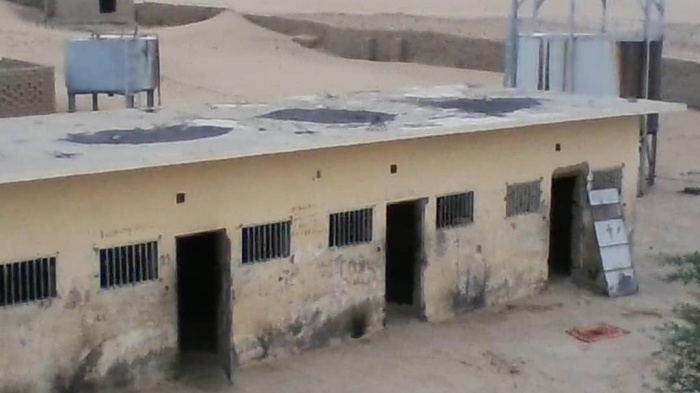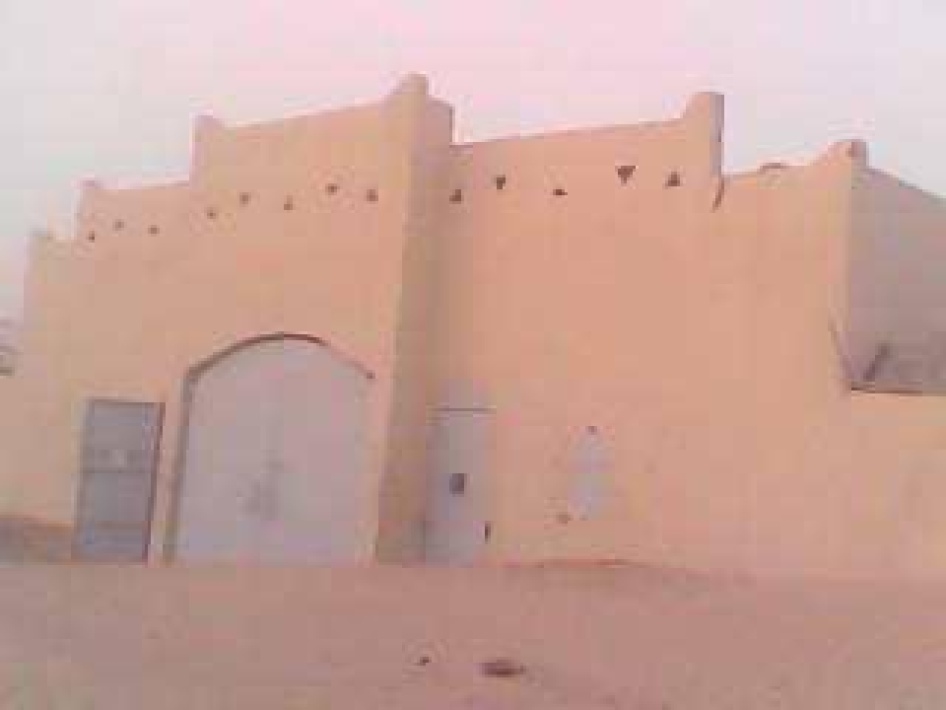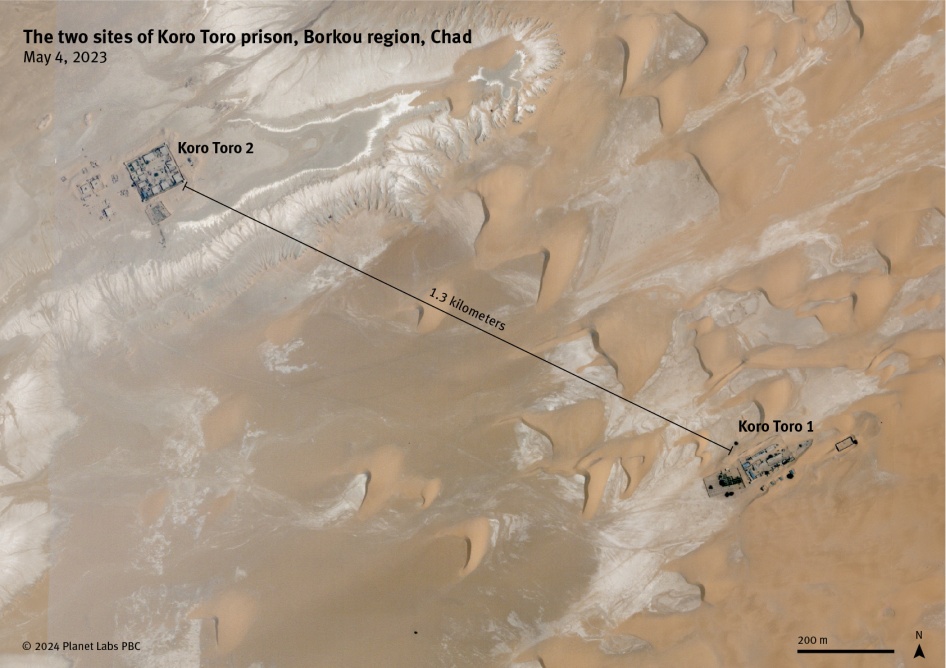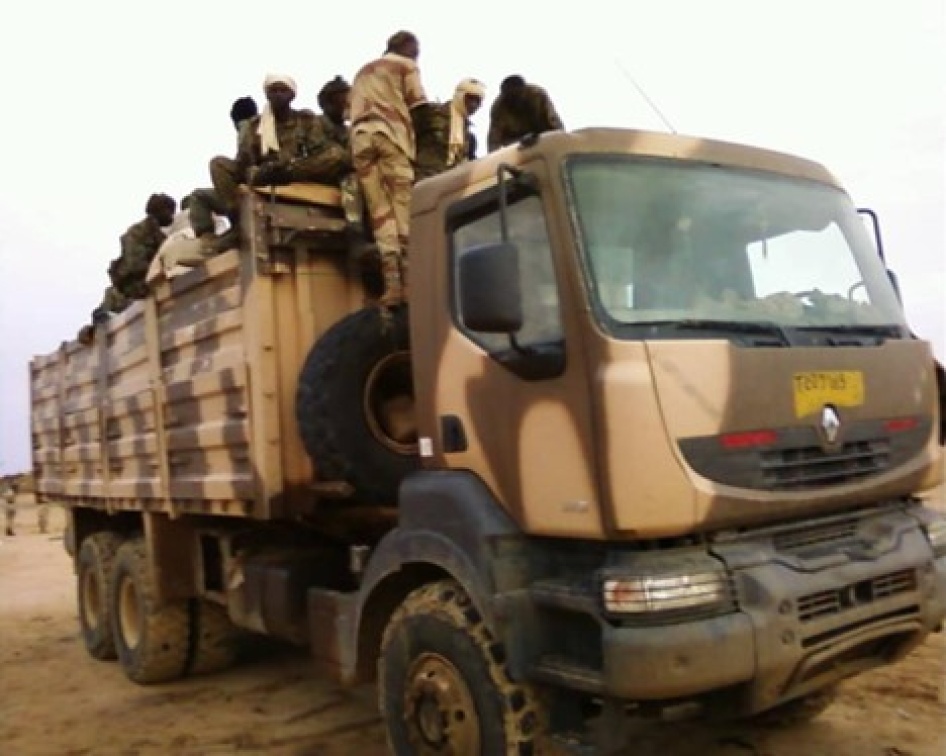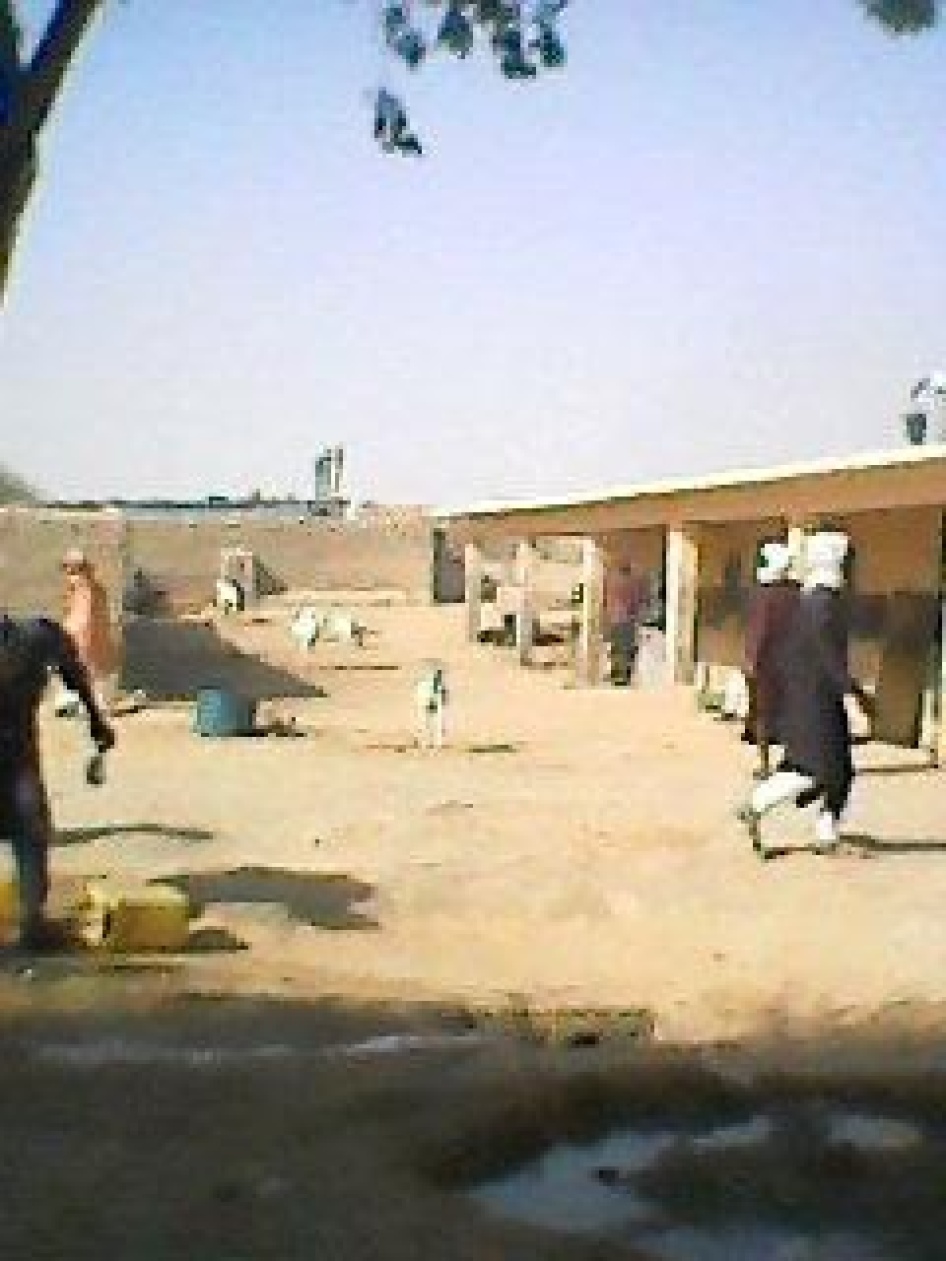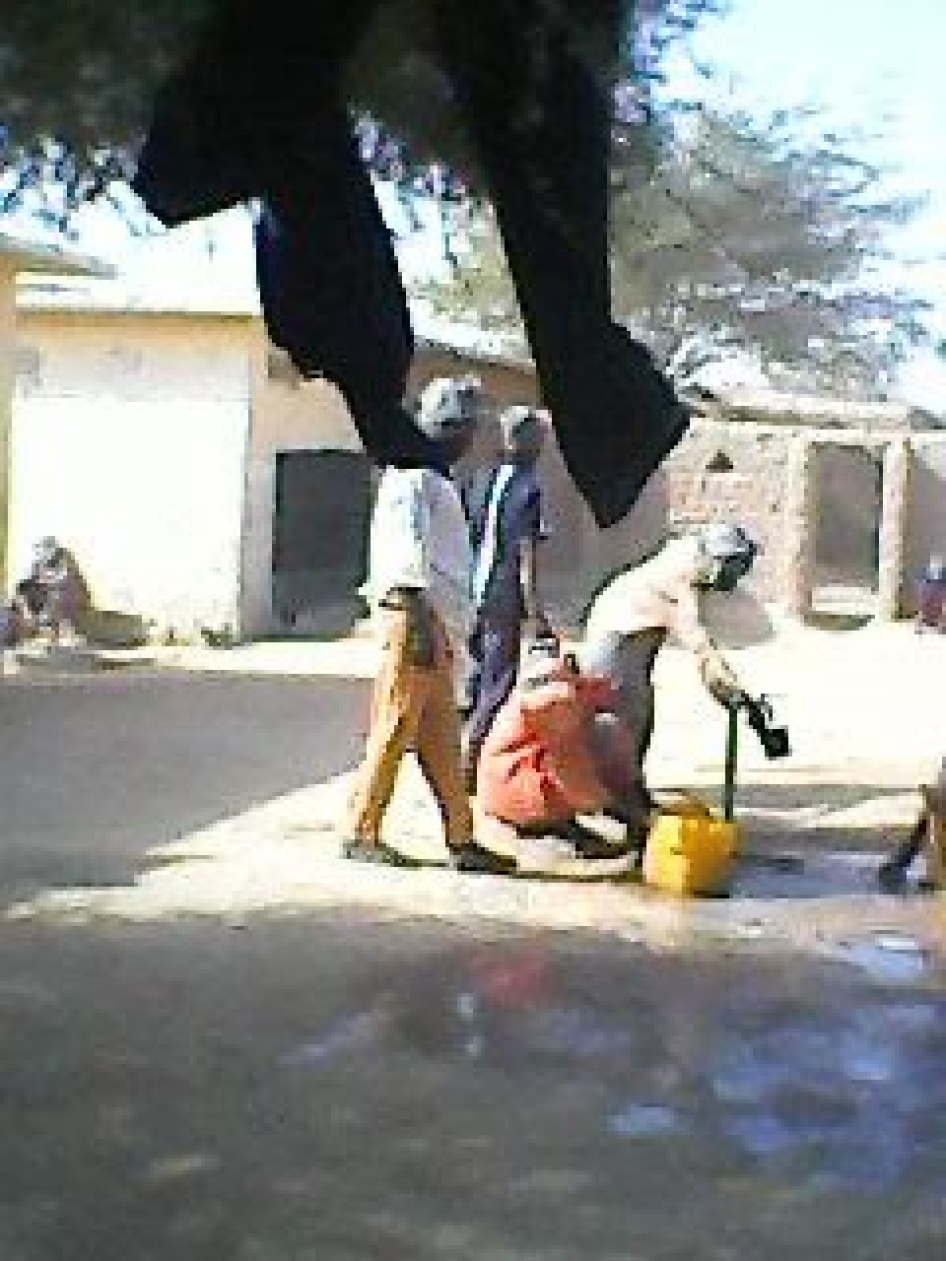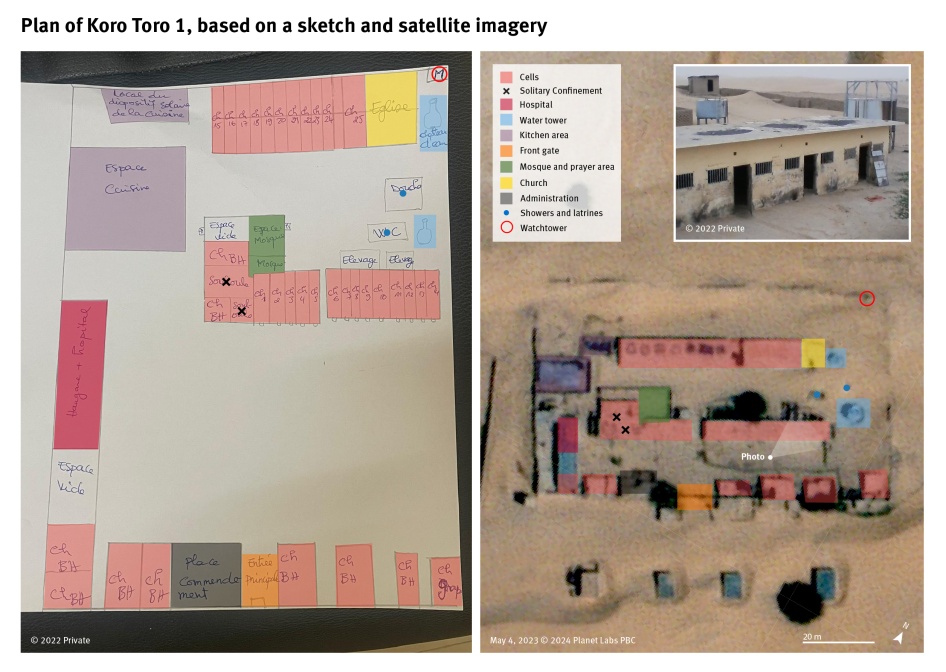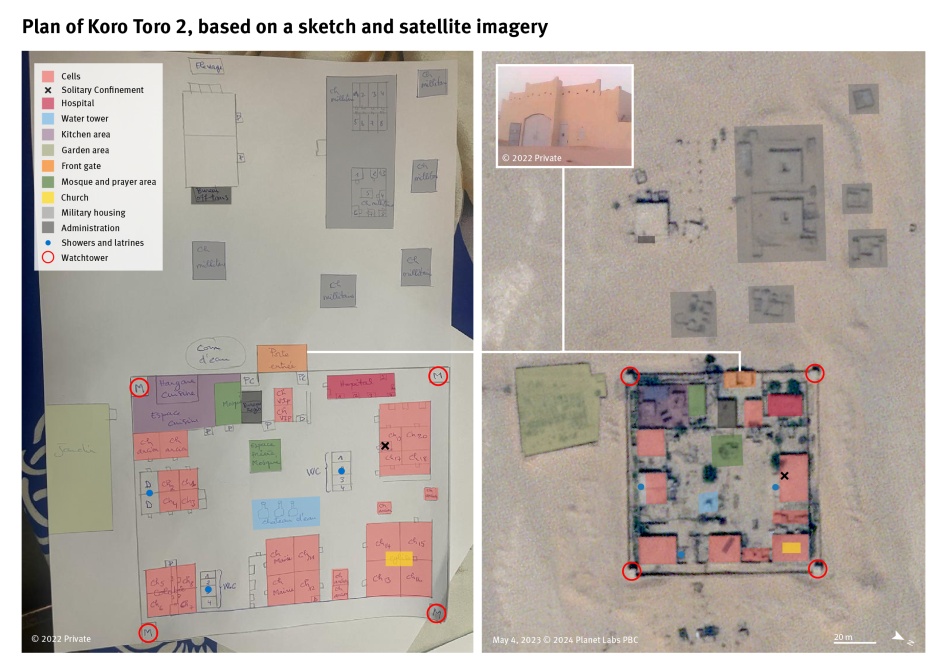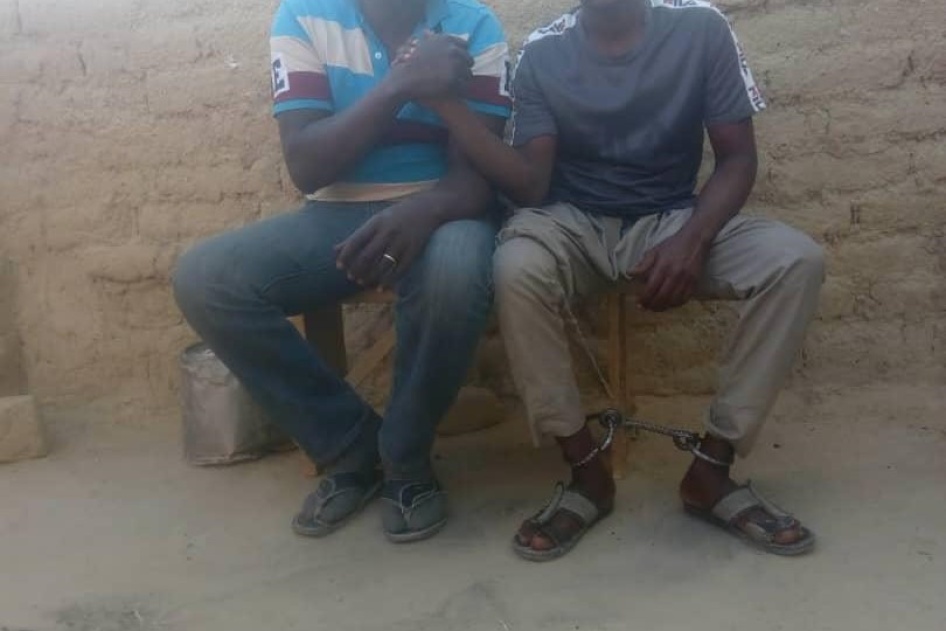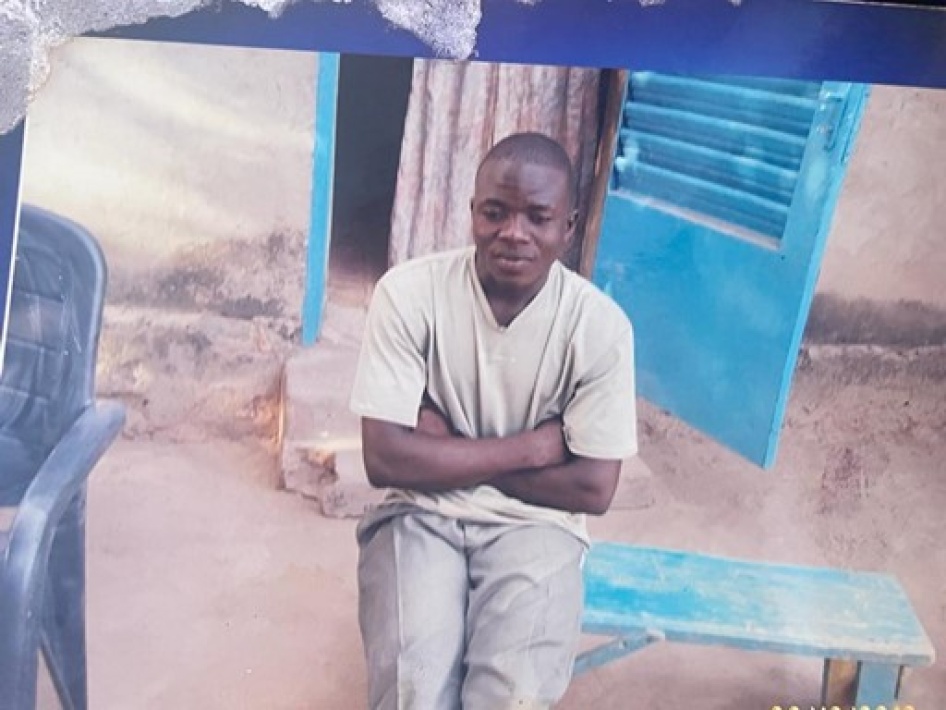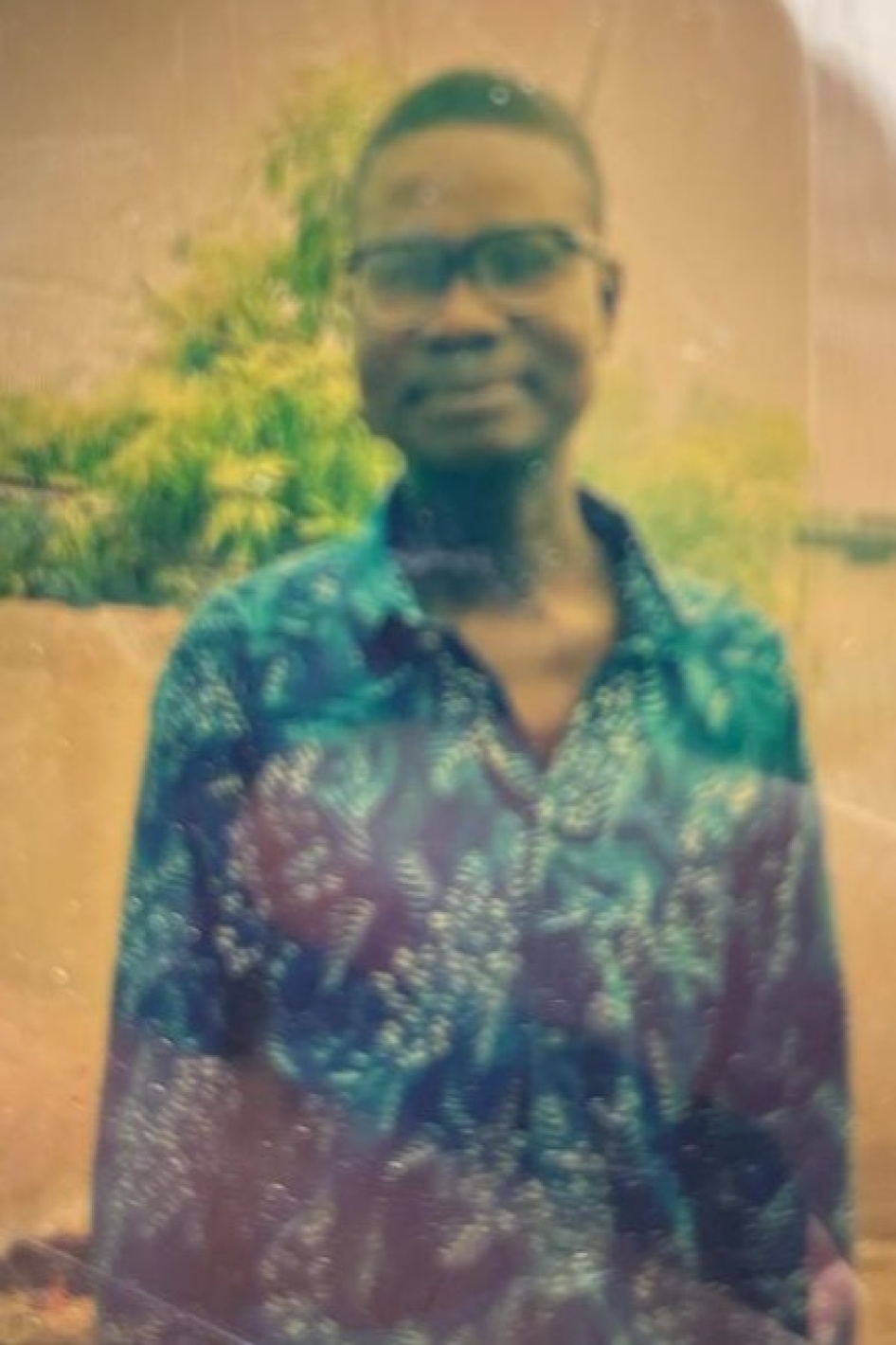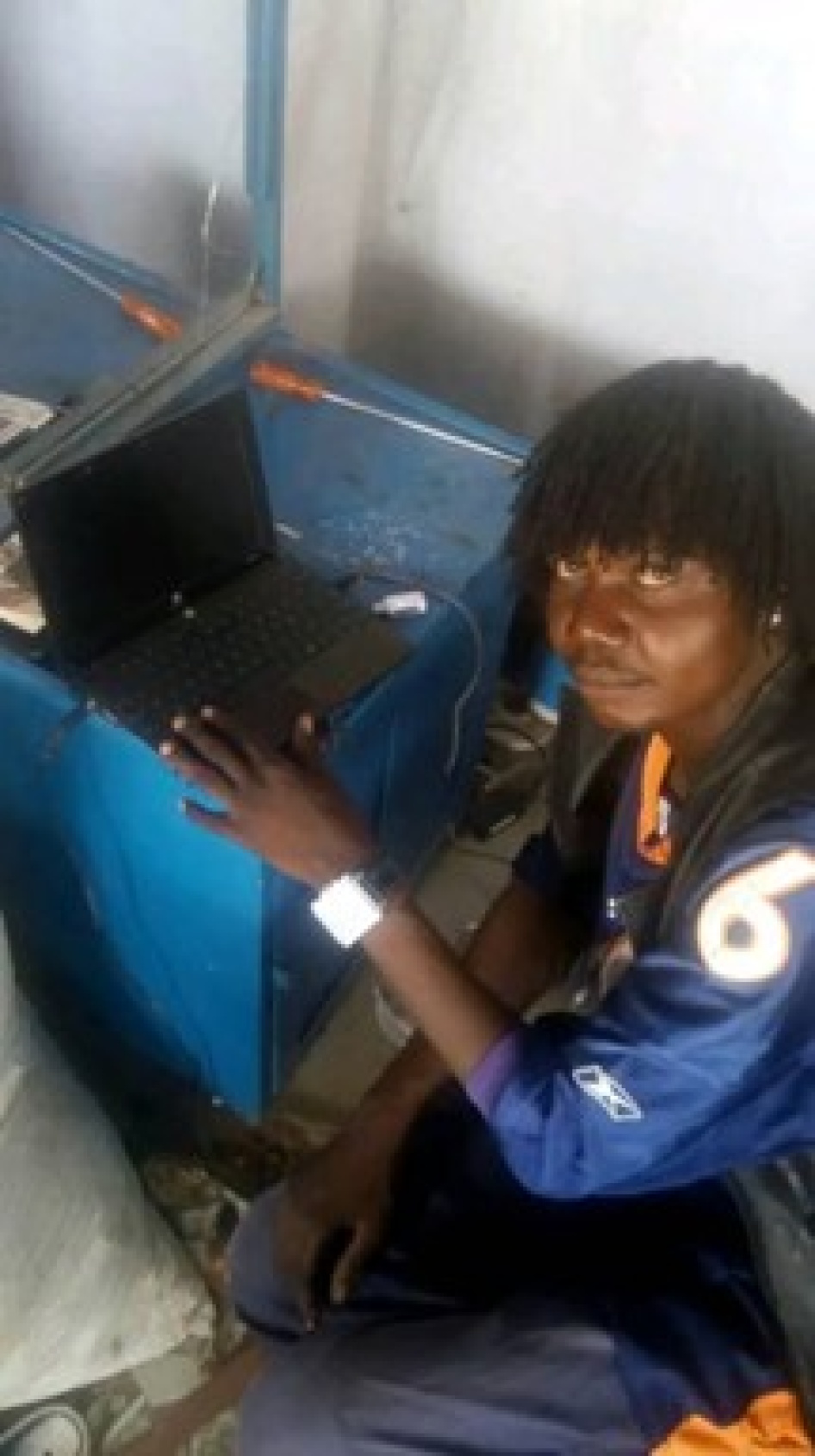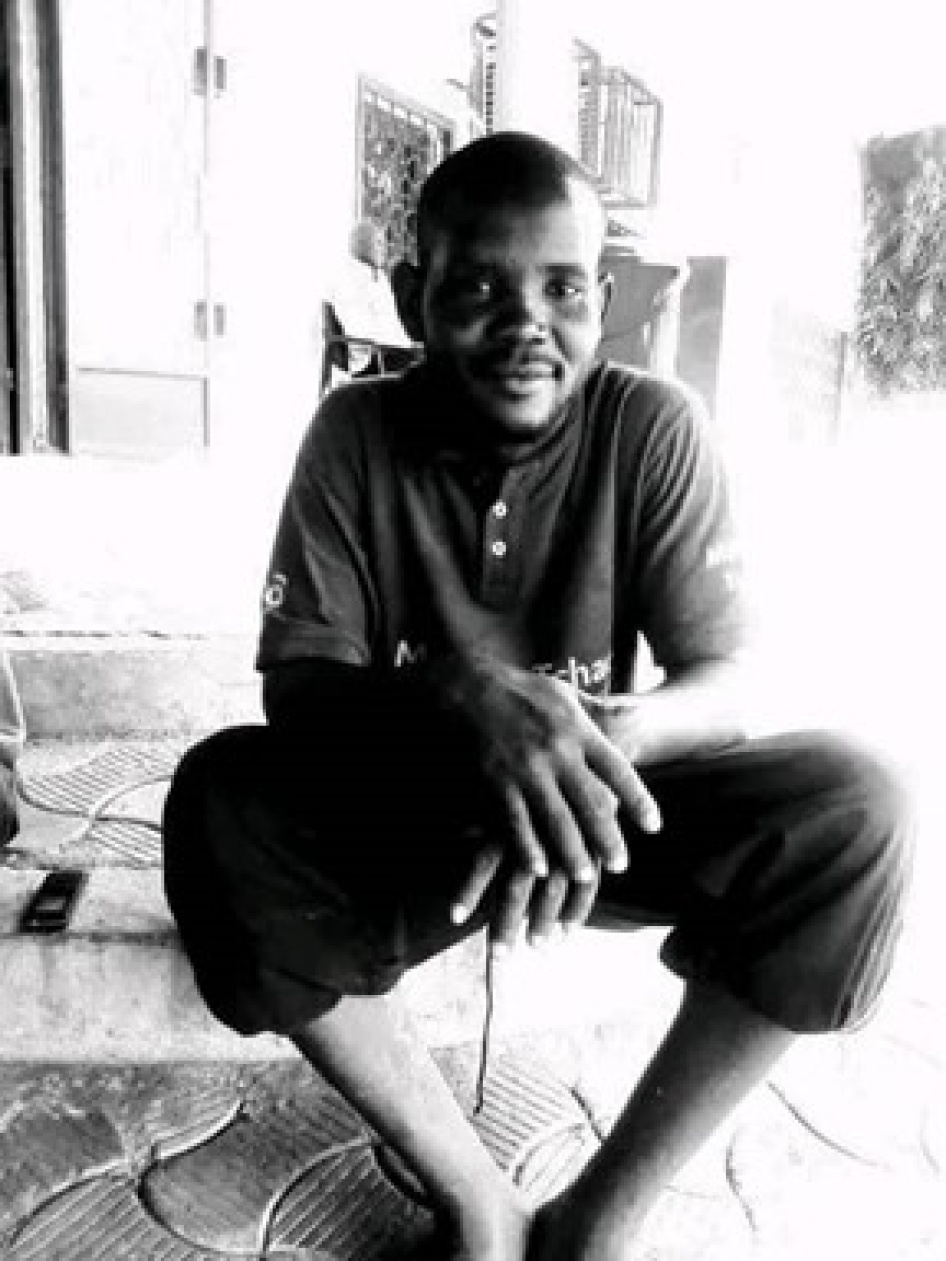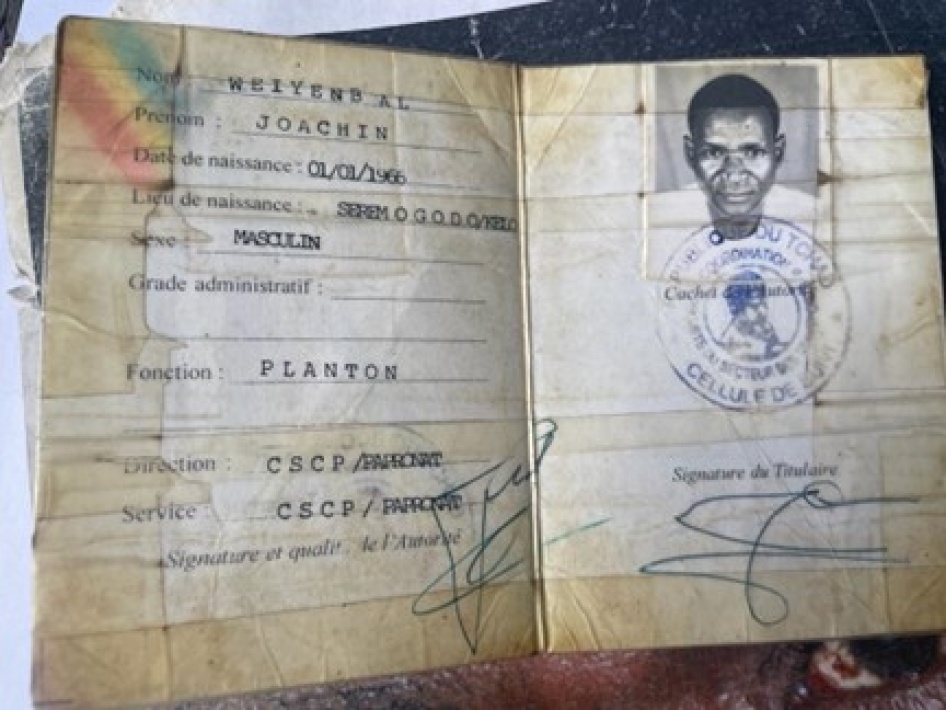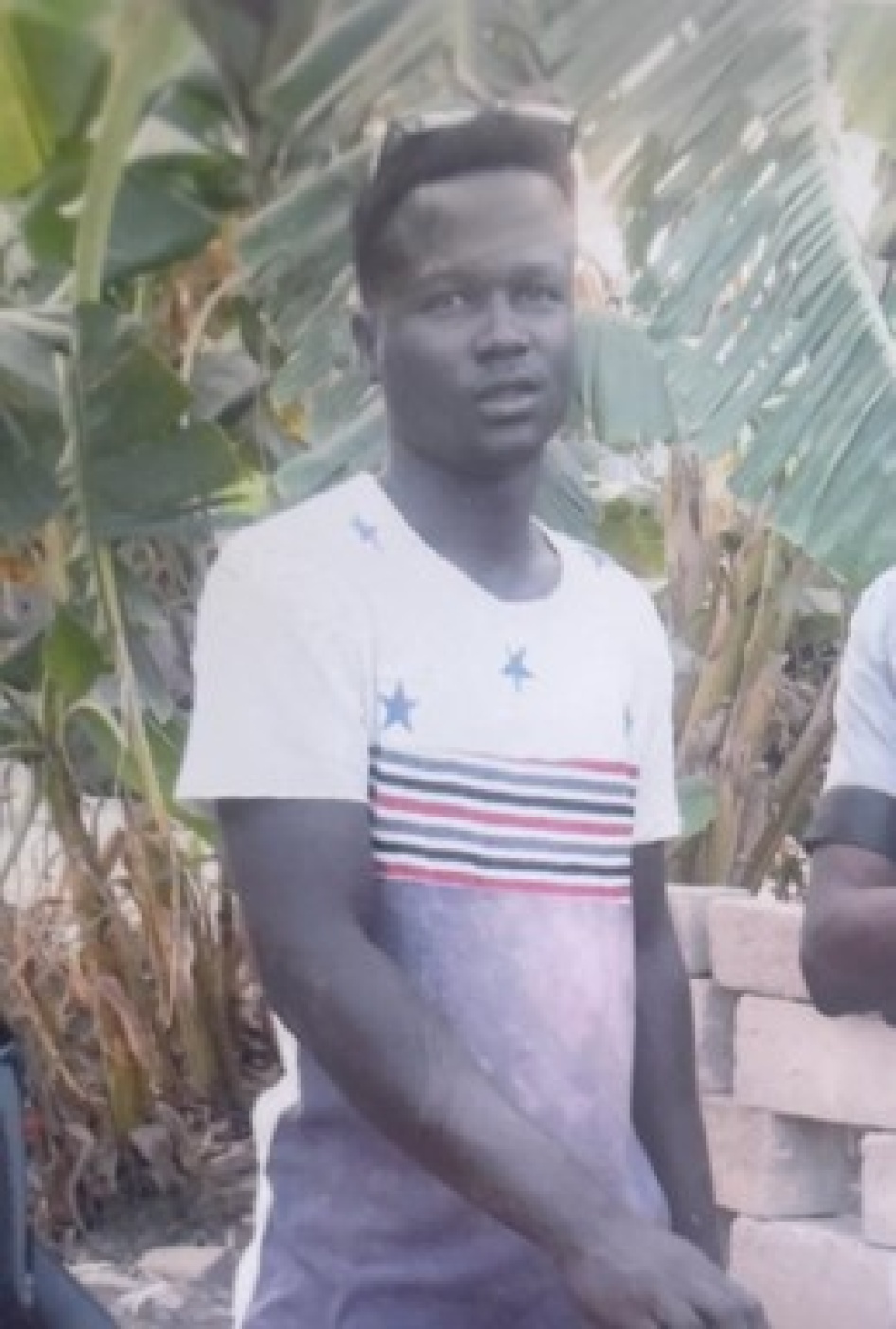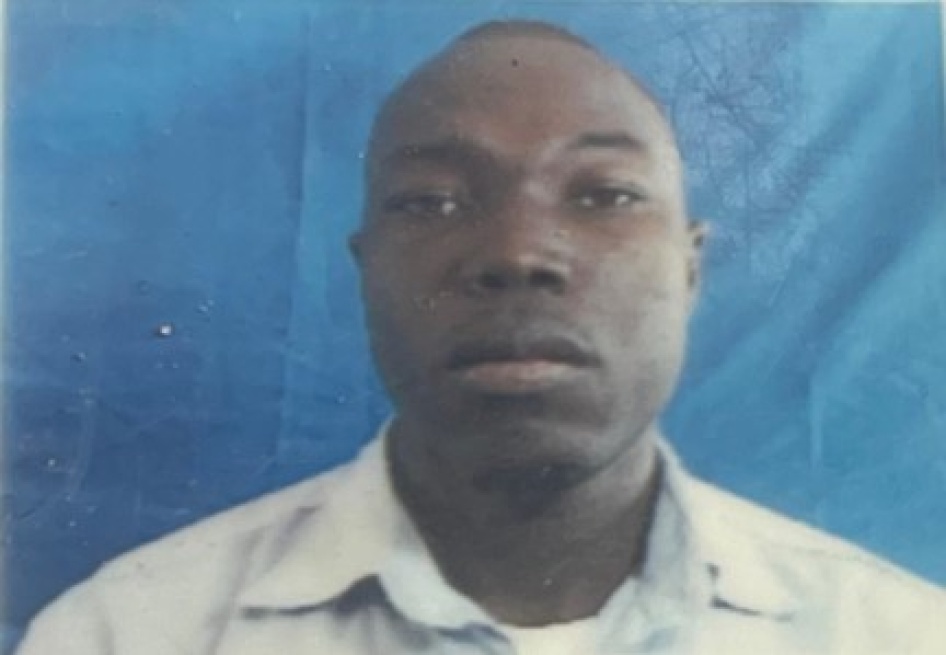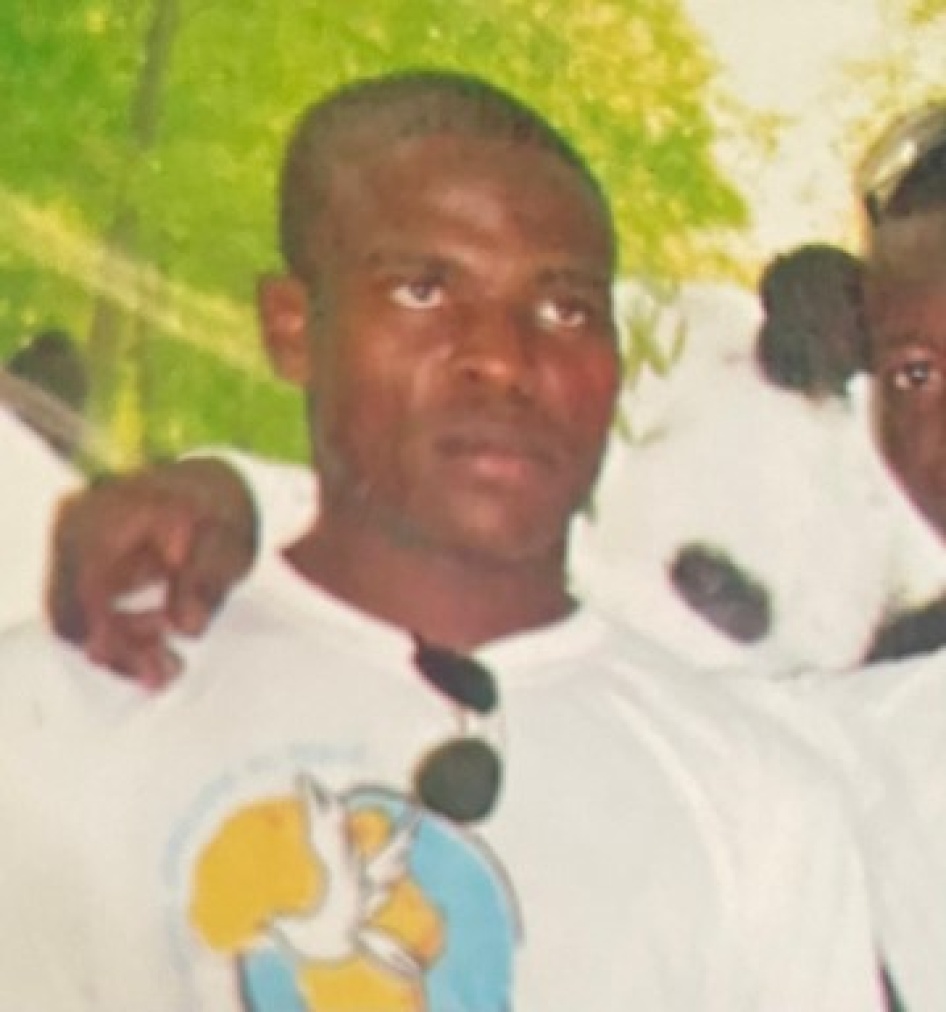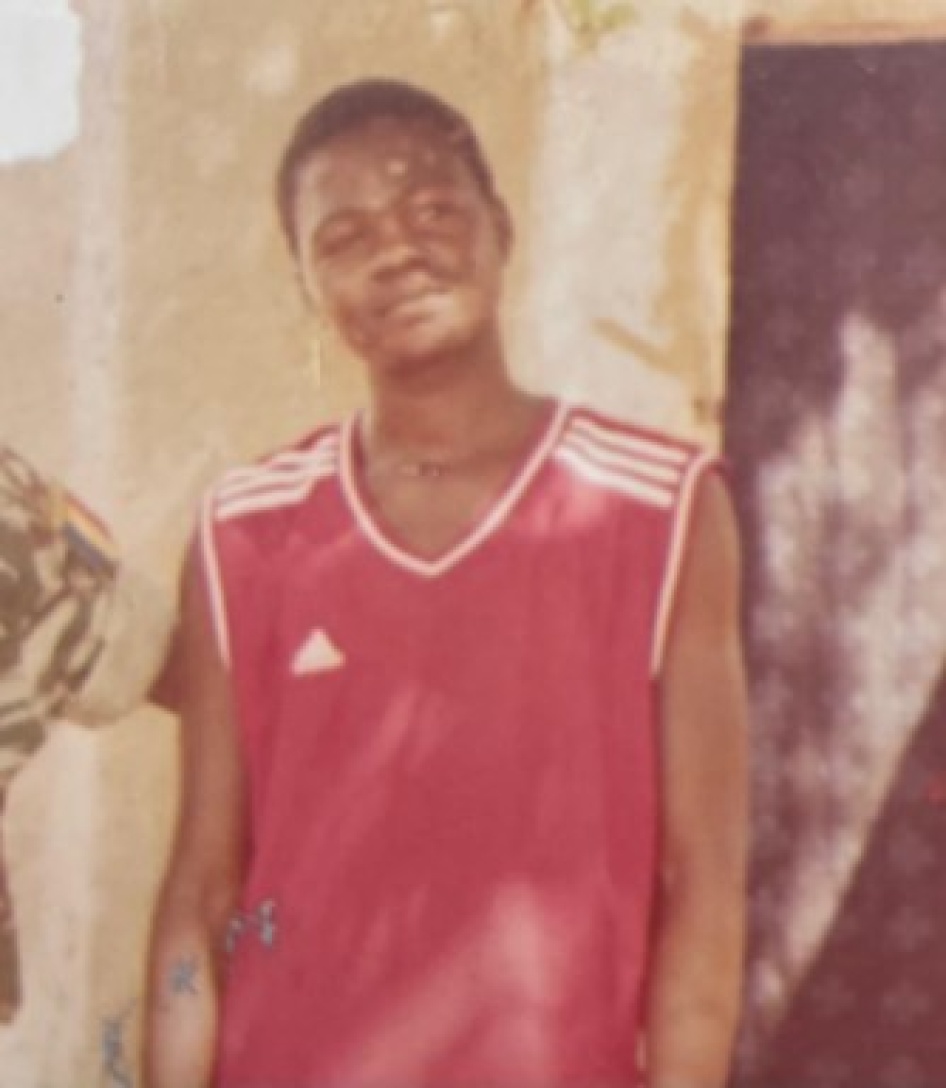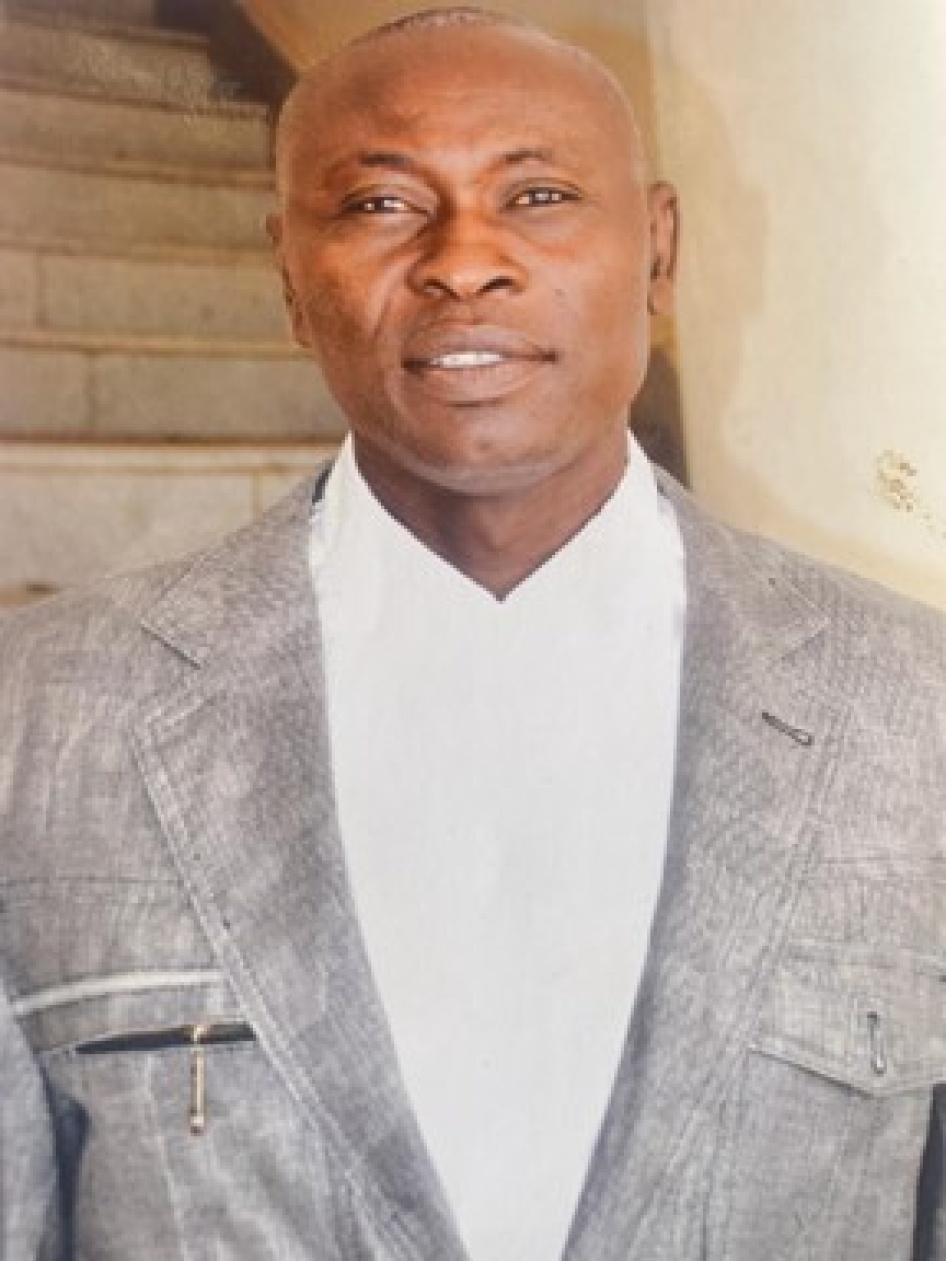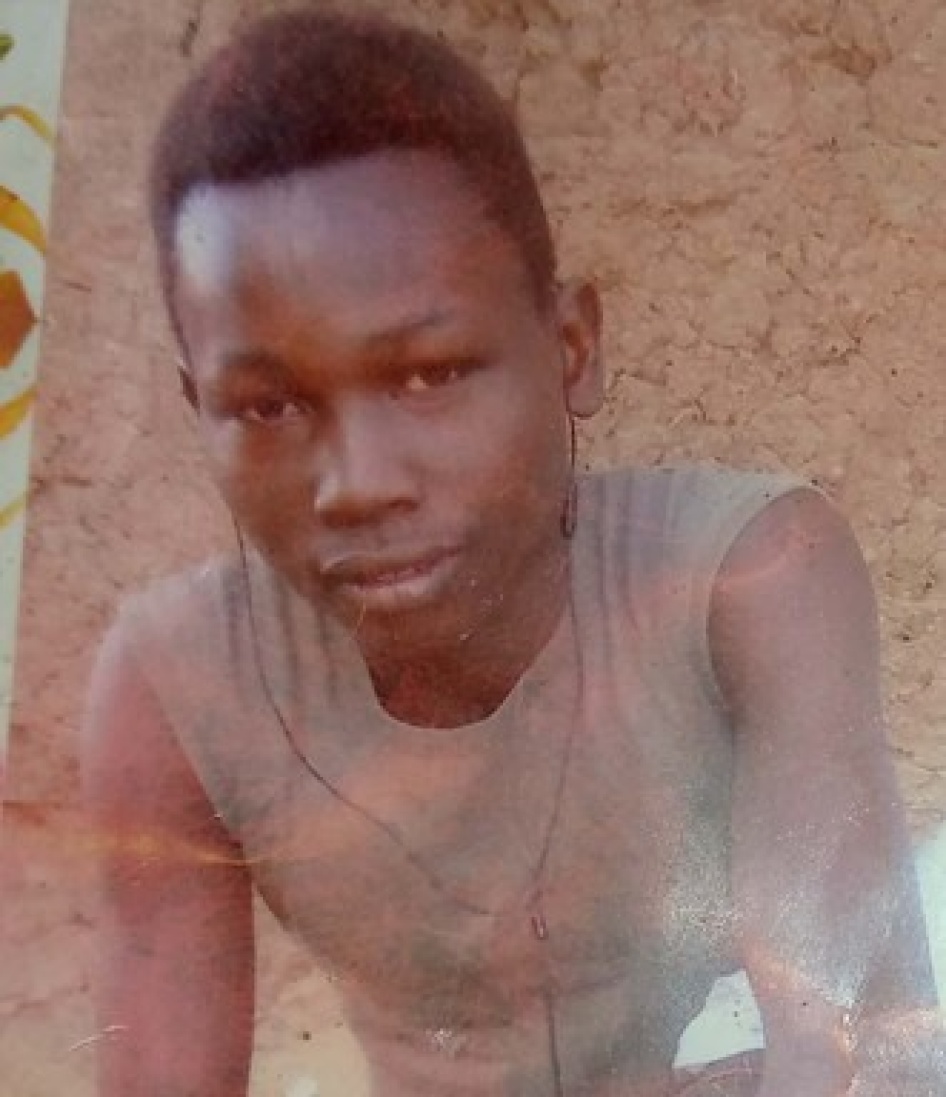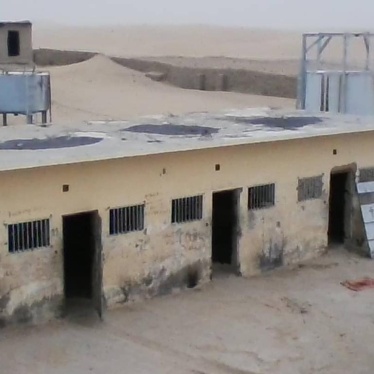Summary
Everything I saw at Koro Toro was terrible. My family was abandoned. I was pardoned, but for what? What did I do wrong?
– Former detainee at Koro Toro, N’Djamena, May 9, 2023
Even now I don’t sleep. I am traumatized by what happened to me. I couldn’t breathe in the Sarkozy [truck] … I am haunted by it.
– Former detainee at Koro Toro, N’Djamena, May 8, 2023
On October 20, 2022, thousands of people took to the streets of N’Djamena, the capital of Chad, and several other towns in the country’s south, to protest an extension of the transitional government by two years. Since former President Idriss Déby Itno died in April 2021, the transitional government headed by his son, Gen. Mahamat Idriss Déby, has on several occasions violently suppressed protests demanding civilian democratic rule. The police, the army, and gendarmes have targeted opposition parties during protests, but the violence used against protestors on October 20, 2022, was more severe than what had been seen before.
Security forces fired live ammunition at protesters, killing and injuring scores, beat people, chased them into homes, and detained them. Relatives, witnesses, and former detainees said that those detained were held in police stations, and in at least one school in Abena, N’Djamena, for several days. In some cases, the protesters were severely beaten in detention by soldiers, police, or gendarmes. Hundreds of protesters, including at least one girl, were then taken to Koro Toro, a high security prison managed by the government and located about 600 kilometers from N’Djamena, in Central Chad. Koro Toro, which was designed to house “violent extremists,” is cut off from the outside world with no cell phone reception and hundreds of kilometers from major urban centers. Given its remote location, family members and lawyers said it is practically impossible to visit the prison.
This report, based on research conducted between November 2022 and July 2023 in N’Djamena, documents human rights violations associated with the transit of detained protesters to Koro Toro and at Koro Toro prison itself. On October 21 and 22, security forces crammed detainees to be transported to the prison into open air trucks at a military base – called Camp 27 – in N’Djamena. Most detainees had been previously held in police stations before being taken to Camp 27. Former detainees said it was very difficult to even turn around or stretch in the trucks, which security forces then escorted to Koro Toro. En route to the prison, most were denied food and water over two to three days, making some of the detainees delirious, with some having to drink their own urine and that of other detainees. Some detainees died, presumably from delirium and hunger.
Human Rights Watch documented the deaths of at least four people en route to Koro Toro, six others at Koro Toro, and of one man who died either en route or at Koro Toro, although the real number of dead is likely much higher. Relatives were not officially informed of the death of their loved ones. Some were told informally. The remains of those who arrived at Koro Toro dead – or of those who died in the prison – have not been released to their families.
Koro Toro is comprised principally of two prisons, known as Koro Toro 1 and Koro Toro 2, or Koro Toro Habré and Koro Toro Déby – named respectively after former Presidents Hissène Habré and Idris Déby Itno, under whose rule the prison blocks were constructed – located about one kilometer apart from each other. Koro Toro 1 – Koro Toro Habré – is older than Koro Toro 2 and is in decrepit conditions. The prisons hold suspects who have yet to be charged with a crime, pre-trial detainees, and convicted prisoners.
At Koro Toro, detainees accused of participating in the October 20, 2022 protests were held in violation of the law, denied due process, and subjected to very limited judicial oversight. They were also exposed to serious human rights violations, including inhuman and degrading treatment.
Koro Toro is administered by the Ministry of Justice and Human Rights, while security is managed by the army, the Garde nationale et nomade du Tchad (The National and Nomad Guard of Chad), known by its acronym GNNT.
Human Rights Watch used geographic features seen in images obtained and verified, and matched these with satellite imagery to geolocate the site of Koro Toro. It then used this material, along with sketches provided by victims, to construct diagrammatic models of the site of the prison, showing cells, areas of solitary confinement, cells in which Boko Haram members were held, and military buildings at the complex.
Former detainees described that, while Koro Toro was guarded by soldiers from the national army, day-to-administration of the prison was managed by prisoners suspected of having links to the Islamist armed group Boko Haram. These prisoners have the most influence in Koro Toro 1, where they punished and beat up other detainees, oversaw food distribution, and ran a small market. Former detainees said that the soldiers gave these prisoners de facto authority to ill-treat and beat others.
Several former detainees were held in isolation cells, called “soulou,” often after minor missteps such as missing a roll call or returning late to their cells. In some instances, other detainees – allegedly those convicted of or awaiting trial for links to Boko Haram – would decide who would be housed in isolation cells. In other instances, detainees were put into these cells by prison officials. Human Rights Watch confirmed at least one case of a detainee who died while in an isolation cell in 2022.
Shackles were routinely used on detainees, perhaps to prevent escapes, as many of the cells at Koro Toro 1 are dilapidated and several are without doors. At least 10 former detainees described how they were shackled with iron bars around their ankles for periods ranging from days to weeks, making it very difficult to walk, change clothes, or use toilets. However, all former detainees interviewed said that hundreds of men or boys were shackled when they were detained at Koro Toro.
Some detainees said they were forced to make bricks that were sold by security forces for profit, which constitutes forced labor. Most former detainees said the prison authorities gave them very limited access to food, water, hygiene, or medical services. None were allowed to contact their families or lawyers, nor had access to legal services. Being cut off from families and lawyers was identified as a key problem by many detainees.
Children as young as 13 years old brought to Koro Toro were held in the same cells and rooms as adults for at least the first 2 weeks of detention.
During the first two weeks, detainees slept on the bare floor until mattresses were provided by the International Committee of the Red Cross (ICRC). Medical treatment was only available at Koro Toro 2. At Koro Toro 1, health care was sporadic and provided by a prisoner, who was referred to as a nurse and said to be accused of being a Boko Haram fighter from Cameroon. Former detainees said that the little medical care provided at Koro Toro 1 and 2 failed to address their needs. One HIV-positive former detainee told Human Rights Watch of a continuing lack of treatment even after he had explained to the officials he was HIV-positive. He was given treatment by the ICRC two weeks into his detention. Human Rights Watch documented at least six cases of detainees who did not receive any medical care, including for injuries sustained from beatings and en route to the detention facility, and then died while at Koro Toro.
A law providing a general amnesty, passed by the transitional government on November 23, 2023, currently blocks prosecutions of security forces implicated in the violent repression of the October 20, 2022 demonstrations. The government, however, is responsible for ensuring accountability for the abuse that happened to those in detention and en route to the detention facility following the protests.
The lawful basis for depriving the October 20 protestors of their liberty is shaky, and the judicial process regulating their detention was sporadic and arbitrary.
By early December 2022, 401 people who had allegedly been caught in the act (“flagrant délit,” according to Chadian criminal law) had been put on trial for a range of charges, including unauthorized gathering, destroying property, arson, and disturbing public order. Over the course of the next several months, an additional 150 and 200 others were put on trials for similar charges.
Judicial proceedings were run by the Tribunal of N’Djamena, which was operating from Koro Toro for the hearings. Based on interviews with former detainees, the interrogations and judicial proceedings were hurried and denied the accused their right to a fair trial. In many instances, the investigating officer or judge was only interested in which neighborhood the defendants came from. Those from neighborhoods believed to be sympathetic to the political opposition were allegedly questioned more specifically about their political allegiance.
During trials, a variety of weapons were presented to defendants as evidence against them and they were told to confess. Each former detainee interviewed by Human Rights Watch said he was put on trial with many other men, usually between 20 to 30 at a time, and that they were then given the same sentences and penalties as a group. The trials, that only lasted a few minutes, were summary in nature. Some accused raised the issue of unlawful detention and abuse suffered both in transit to Koro Toro and at Koro Toro prison in court, but the judges paid no heed to the complaints.
Chadian authorities are obliged under international human rights law to provide detainees with the same health care available to people who are at liberty and, under international standards, pretrial detention should only be used as a last resort.
Article 22 of Chad’s 2023 constitution forbids illegal arrests and arbitrary detention.[1] Article 19 forbids degrading and inhuman abuse or treatment as well as torture.[2] Article 25 sets out the presumption of innocence and provides guarantees for the defense of the accused.[3]
Chad’s Criminal Code, revised in 2017, defines torture in accordance with the 1984 Convention against Torture, and Other Cruel, Inhuman or Degrading Treatment or Punishment.[4] According to article 176 of the Code, a law enforcement official who, “without justification, uses violence against one or more persons in the exercise of his or her duties will be punished with a term of imprisonment of between six months and five years.”[5]
The Chadian government maintains that the protests on October 20 amounted to an insurrection and that, given the seriousness of this crime, detention at Koro Toro was not extreme. Over one year on, those connected to the protests who were detained at Koro Toro have been pardoned and most have been freed and transferred back to N’Djamena. In a July 2023 letter to Human Rights Watch, reproduced in Annex II of this report, Chad’s minister of justice noted that there existed “no evidence relating to the violation of human rights related to [the] transfer or detention in Koro-Toro prison.”
Human Rights Watch calls on the Chadian government to immediately close Koro Toro 1 on the basis that it is unfit for holding detainees as it lacks even the most basic standards of care. Koro Toro 2 should undergo repairs to make it adequate for holding prisoners, including installing a means for detainees to communicate with their families and legal services. No one should be held at Koro Toro without charges, and anyone currently so held should be released immediately. In accordance with international law, pretrial detention should only be used in exceptional circumstances, as provided for in Chadian law. Pretrial detainees should not be held together with convicted prisoners, and their detention should not prevent them from being able to prepare an effective defense. Accordingly, those currently remanded by a court to pretrial detention should not be held in Koro Toro but transferred to a more accessible detention facility, where they can receive a prompt trial.
Chadian authorities should also secure the return to their families of the remains of the October 20 protestors who died either in transit to Koro Toro or at Koro Toro so they can be buried with dignity.
In the cases documented in this report, the security forces who detained protesters were from the Chadian national police, gendarmerie, and the army and detainees were transported to Koro Toro prison by soldiers. Human Rights Watch calls on the Chadian national police, gendarmes, and the army to investigate all cases of ill-treatment associated with the transfer to and detention at Koro Toro prison such as those described in this report, suspend those responsible for these abuses, and ensure they are brought to justice.
The UN special rapporteurs on extrajudicial, summary or arbitrary executions, and on torture and other cruel, inhuman or degrading treatment or punishment, and the African Commission on Human and Peoples' Rights (African Commission, or ACHPR) special rapporteur on prisons, conditions of detention and policing should visit Chad to examine cases of torture, ill-treatment, and deaths in custody, including the ones outlined in this report.
The UN and the African Union, including the above-mentioned special rapporteurs, should provide technical and other assistance to support a Chadian investigation, or conduct their own investigations if the Chadian authorities fail to act.
Recommendations
To the President of Chad
Take steps to secure the immediate closure of Koro Toro 1 and allow the renovation of facilities and review of operations at Koro Toro 2 prison, including exploring options for establishing a cell phone tower at the prison to ensure communications between detainees and their families or lawyers.
Publicly and unequivocally condemn cruel, inhuman, or degrading treatment and torture in the two prisons and other detention facilities in Chad.
Suspend the application of the general amnesty for all members of the security forces implicated in abuses against people involved in the October 20, 2022 protests.
Promptly order a transparent and impartial investigation into allegations of killings, ill-treatment, and torture associated with people detained in connection with the October 20, 2022 protests, some of whom were transferred to Koro Toro prison, and ensure that all personnel implicated in serious violations, regardless of rank, are appropriately disciplined or prosecuted. Publicly release regular reports detailing the progress and results of investigations and any actions taken against individuals implicated in abuse.
To the Government of Chad
Close Koro Toro 1 and ensure immediate renovation and thorough overhaul of facilities and operations at Koro Toro 2 to bring it into compliance with international standards for correctional institutions.
Conduct a feasibility study into the establishment of a cell phone tower at Koro Toro 2.
Pending renovations, ensure the orderly transfer of current prisoners to other prisons in accordance with full respect for their due process rights; immediately release any detainees held without charge, and ensure any detainees remanded to pretrial detention by a court are transferred to facilities where they can effectively prepare their defense for a prompt trial.
After the facilities at Koro Toro 2 have been upgraded, ensure all prisoners are treated in accordance with the standards laid out in the UN Standard Minimum Rules for the Treatment of Prisoners, known as the “Mandela Rules,” including compliance on feeding, accommodation, health, and hygiene services as well as recreational and educational services.
End any system or policy that permits certain prisoners to exercise control or perform functions of prison authorities over other prisoners, and hold accountable, including through criminal prosecution, prison authorities who delegate powers to prisoners or tolerate exercise of de facto powers by prisoners.
Implement a zero-tolerance policy for any form of ill-treatment of detainees, including beatings, inflicted by other prisoners, and inform both staff and prisoners that they will be disciplined and punished for abuses.
Investigate cases of abuse and misconduct by members of security forces, including those documented in this report, and prosecute officials responsible for the ill-treatment of detainees during transit to and at Koro Toro prison.
Take disciplinary actions against officers who breach their obligations, including directors at Koro Toro and Camp 27, and prosecute those alleged to have committed criminal offences, including such human rights violations as torture and ill-treatment.
Ensure that prosecutions of security forces who have been charged with crimes are carried out promptly, fairly, and in accordance with international fair trial standards.
Ensure that the conduct of all police and gendarme officers comply with human rights standards relating to police functions, including those set out in the International Covenant on Civil and Political Rights (ICCPR), the African Charter on Human and Peoples’ Rights, and the Convention against Torture, and Other Cruel, Inhuman or Degrading Treatment or Punishment, and abide by Chadian laws that reflect these standards (including Article 292 of the Chadian Criminal Code).
Ensure that all police officers, gendarmes, and members of the military receive appropriate and sufficient training to understand their responsibilities to respect human rights as defined by the international treaties to which Chad is a party and to prevent violations of these rights.
Ratify the International Convention for the Protection of All Persons from Enforced Disappearance and the Optional Protocol to the Convention against Torture and other Cruel, Inhuman or Degrading Treatment or Punishment.
To the Chadian National Police and Gendarmes
Investigate allegations of unlawful detention, ill-treatment, and corruption such as those documented in this report.
Suspend and take disciplinary action against police officers or gendarmes responsible for these abuses and ensure they are brought to justice.
To the Chadian Army
Investigate allegations of unlawful detention, ill-treatment, corruption, and extrajudicial killings such as those described in this report.
Suspend and take disciplinary action against officers or soldiers responsible for these abuses and ensure they are brought to justice.
To Donor Partners
Call for the immediate closure of Koro Toro 1 and the renovation of Koro Toro 2.
Press the Chadian government to fully investigate and sanction all human rights violations committed by state officials during and in the follow-up to the October 22 protests and at Koro Toro prison.
Urge Chadian authorities to bring to justice, in fair and credible trials, members of the military and other individuals responsible for ill-treatment and other abuse in transit to and at Koro Toro prison.
In all assistance programs directed at the Chadian security forces, include training on human rights with a particular focus on enforcement of the prohibitions of torture and the excessive use of force.
To the UN special rapporteurs on extrajudicial, summary or arbitrary executions and on torture and other cruel, inhuman or degrading treatment or punishment
Visit Chad to examine cases of torture, ill-treatment, and deaths in custody, including the ones outlined in this report.
Give a public accounting of this visit and any follow up to be done by the government of Chad.
To the African Commission on Human and Peoples' Rights Special Rapporteur on Prisons, Conditions of Detention, and Policing in Africa
Visit Chad to examine cases of torture, ill-treatment, and deaths in custody, including the ones outlined in this report.
Give a public accounting of this visit and any follow up to be done by the government of Chad.
To the Economic Community of Central African States (ECCAS)
Publish the results of the investigations carried out in Chad over the course of 2023 into both the state response to the protests of October 20, 2022, and the transfer and detention of protestors at Koro Toro prison.
Methodology
This report is based on research carried out by Human Rights Watch in N’Djamena, Chad’s capital, during research trips in November 2022 and April, May, and June 2023. Telephone interviews were conducted from November 2022 through January 2024.
Human Rights Watch interviewed over 150 people for this report, including 71 adult former detainees and one 13-year-old boy who had been held at Koro Toro after the October 22, 2022 protests. Names and other identifying information have been withheld to protect privacy and security.
Human Rights Watch conducted most interviews in French. In some instances, interviews were conducted in Ngambay, a language spoken in Southern Chad, with an interpreter. Former detainees were interviewed individually and privately. Human Rights Watch staff explained to each interviewee the purpose of the interview, its voluntary nature, the way in which the information would be used, and the fact that no compensation would be provided.
Some prisoners were able to give Human Rights Watch photos from Koro Toro stored on memory cards.
In June 2023, Human Rights Watch wrote to then-transitional president and now current president, the prime minister, the minister of justice, the minister of public security, the minister of defense, and the head of the national police requesting meetings to discuss its research findings on Koro Toro. Human Rights Watch met with the prime minister on two occasions and once with the minister of public security. Human Rights Watch shared a summary of its research with the government on June 29, 2023 (see Annex I of this report). The minister of justice responded to Human Rights Watch’s concerns in writing, in a letter dated July 6, 2023 (see Annex II of this report).
This report focuses specifically on human rights violations committed during transport to and at Koro Toro prison. Human Rights Watch has heard of other abuses in several other detention centers in Chad, but this report does not cover those locations. Human Rights Watch documented human rights abuse perpetrated as part of the crackdown against protestors in other publications.[6]
Background
Increased Repression
Government security forces intensified their crackdown on protesters and the political opposition in the lead-up to the country’s April 11, 2021 presidential election, in which then-incumbent President Idriss Déby Itno, who had been ruling Chad since December 1990, when he removed the autocratic leader Hissène Habré,[7] ran for a sixth term.
From February to April 2021, a coalition of nongovernmental groups, labor unions, and opposition political parties organized peaceful demonstrations in N’Djamena and other cities across the country to protest Déby running for a sixth term, despite a government ban on public gatherings.[8] Over the course of these demonstrations, police, gendarmes, and soldiers beat protesters with whips, sticks, and batons and arbitrarily detained scores of people.
Security forces used teargas and other forms of force to disperse peaceful protesters in N’Djamena on several occasions including on February 6 and15 and March 20[9] and 27,[10] injuring dozens of protesters and bystanders. They also arbitrarily arrested at least 112 opposition party members and supporters and civil society activists and subjected some to severe beatings and other ill-treatment. In an attack on the home of a political opposition leader and presidential candidate, Yaya Dillo, on February 28, security forces killed his 80-year-old mother and wounded five other family members.[11]
Presidential elections were held on April 11, 2021. On April 19, the Chadian electoral commission announced that Déby had won a sixth term. On election day, rebels from the Front for Change and Concord in Chad (Front pour l'alternance et la concorde au Tchad, FACT), based in Libya, launched an assault on Chad, attacked a military post in the Western Kanem province, and called on Déby to step down. Clashes between rebels and government forces continued over the following days in the province and the president himself oversaw the fighting. On April 20, a spokesman for the Chadian army announced on national television that Déby, 68, had died of injuries suffered in the clashes.[12] The exact circumstances of his death remain unclear.[13]
Chad’s 2018 Constitution, in force at the time, was clear that in the event of the death of a ruling president, the president of the national assembly should provisionally lead the country for 45 to 90 days before new elections are held.[14] In violation of the constitution, the military spokesman announced that the government and parliament had been dissolved, all borders shut, and a transitional military council (Conseil militaire de transition, or CMT) headed by Mahamat Idriss Déby, one of Déby's sons, was to take over.[15]
The transitional military council suspended the constitution and replaced it with a transitional charter, committing to hold free elections within 18 months, after a national dialogue. Following the suspension of the 2018 constitution, negotiations between the transitional military council and the opposition led to several activists and armed group leaders returning to Chad after years of exile.[16]
Hundreds of members and supporters of opposition parties and civil society organizations united under a coalition known as Wakit Tamma (“the time has come” in Chadian Arabic) and other residents demonstrated in N’Djamena, as well as in Moundou, Doba, and other cities across the country, on April 27 and 28 and May 8 and 19, 2021. The protesters challenged a transitional military council ban on demonstrations and demanded a transition back to civilian rule. Armed forces from the police, gendarmes, and military used excessive force, including indiscriminate live ammunition, to disperse the demonstrations. During these protests, at least seven people were killed, dozens were wounded, and security forces detained more than 700 people, several of whom reported ill-treatment, including torture, in detention. Most were eventually released.[17]
From June through September 2021, the authorities took some positive steps. For example, the government recognized the popular opposition movement Les Transformateurs (The Transformers in French) as a political party[18] and, on June 10, the authorities released Baradine Berdei Targuio, a prominent human rights defender who had been unjustly detained.[19] Thanks to sustained international pressure, the authorities allowed opposition-led demonstrations across Chad during this period.
On October 2, 2021, in an authorized demonstration, hundreds of N’Djamena residents joined members and supporters of Wakit Tamma to protest the CMT’s rule and seek amendments to the transitional charter. Although the authorities had authorized the demonstration, the anti-riot police – and in one case, gendarmes – fired teargas canisters, rubber bullets, and potentially live ammunition at protesters, injuring about 40 to 45 people and damaging private property.[20]
The national dialogue, initially scheduled for February 2022, was delayed, sparking growing calls both in Chad and outside for a civilian-led transition and credible elections.[21]
Following protests on May 14, 2022, the authorities placed six Wakit Tamma members and supporters in “preventive detention” at Klessoum prison, in N’Djamena, on allegations of “gathering to cause public disturbance, harm to property, and physical assault.”[22] The six were then transferred to Moussoro prison, 300 kilometers from the country’s capital, before being eventually released in June after their sentences were suspended.[23]
The national dialogue was convened in August 2022 amid increased tensions in the capital and further protests were organized. Government forces injured scores of protesters in N’Djamena during the first 10 days of September, including with teargas. Security forces also detained over 220 people, including many members of Les Transformateurs, and targeted the Abena neighborhood, where the group’s headquarters is located.[24]
The main rebel groups, opposition parties, and civil society organizations refused to participate in the national dialogue, citing the military’s unwillingness to commit to returning power to civilians.[25]
Tensions boiled over when the national dialogue ended in early October 2022. It concluded by extending the transition (which was meant to end that month) for another two years, and stated that CMT members, including Déby, would be eligible to run in the next national elections.[26] The dialogue also recommended the dissolution of the transitional military council and for Déby to become transitional president.
The Deadly October 20, 2022 Protests
On October 20, 2022, thousands of protestors took to the streets of N’Djamena, and several other cities and towns in southern Chad, including Moundou, Doba, and Sarh.[27]
Armed forces from the police, gendarmes, and military fired live ammunition at protesters, killing and injuring scores, beat people, chased them into homes, and detained them. Relatives and witnesses said that those detained were held in police stations, and in at least one school, in Abena neighborhood of N’Djamena, for several days.[28]
Over the course of its research following the protests, Human Rights Watch collected reliable accounts of several men or boys killed and other men or boys forcibly disappeared.[29] Those forcibly disappeared had been seen being detained by the police or military, but when relatives or friends sought to follow up, they discovered they had not been processed through the court system. Their whereabouts remain unknown.
In the hours following the protests, Chadian authorities said 50 people were killed, including around 15 police officers, and 300 injured.[30] The authorities later adjusted the number of police officers killed to 13, but did not make their identities public. While the full toll of the violence around the October 20 protests is still not known, the National Human Rights Commission (Commission Nationale des Droits de l'Homme, CNDH) rendered the most authoritative national report to date (see below). In its report, released in February 2023, the CNDH listed 128 people killed and 518 injured. The CNDH confirmed that two police officers had been killed,[31] leaving open a discrepancy with official government figures, and raising questions as to whether the government had exaggerated the numbers of dead police officers to justify the use of force.
A national human rights organization, the Chadian League for Human Rights (Ligue tchadienne des droits de l’homme, LTDH) and the World Organization Against Torture (l’Organisation mondiale contre la torture, OMCT), an international coalition of organizations, released a report in April 2023 which stated that 218 protestors had been killed.[32]
The CNDH Report The CNDH report indicates that, despite the stated aim of some of the participants and organizers to demonstrate peacefully, others in the crowd had bladed weapons and attacked the security services with stones.[33] Nevertheless, the report is damning in its main conclusion that the security forces, “systematically violated several fundamental human rights…[using] disproportionate means.”[34] The CNDH further assigned “primary responsibility for human rights violations to agents vested with state authority, namely state security forces.”[35] The report also notes that men in civilian clothes transported in private vehicles with smoked windows used weapons against protesters.[36] It called for an investigation into who these men may have been. The report further stated that “systematic violations of fundamental rights” continued after October 20 through torture, illegal searches, abductions, or arbitrary detentions.[37] It also reported cases of prisoners who died in detention at Koro Toro prison (see below) and that judicial proceedings organized at the prison were not fair.[38] In conclusion, the CNDH asked important questions that have yet to be resolved, including why the government, which was informed of plans for a major demonstration, did nothing concrete to avoid the loss of life? Who gave orders to state security forces to shoot at and kill demonstrators? And why had judicial investigations not been opened into the serious human rights violations?[39] The report also made recommendations to the government, including recommending the prosecution of those responsible for human rights violations.[40] |
In the days following the violence, the Economic Community of Central African States (ECCAS), one of Africa’s eight subregional economic communities, announced an investigation commission. While members of the commission interviewed some former detainees at Koro Toro prison, it is unclear if the final report, which is yet to be made public, will highlight abuse at the prison.
In a letter addressed to Human Rights Watch (see Annex II), dated July 6, 2023, the minister of justice reiterated the government’s position that the events of October 20 were not protests, but an insurrection, with the aim of overturning the transitional government.
Succès Masra, opposition leader and president of Les Transformateurs, left the country days after the protests. On November 9, 2022, French lawyers representing Masra announced they had sent the International Criminal Court (ICC) a report of facts qualified as crimes against humanity.[41] On October 5, 2023, Masra informed Chad’s public security minister in a letter that he was planning to return to the country on October 18.[42] That same day, an arrest warrant issued by Chadian authorities, dated from June 2023, appeared on social media.[43] The warrant stated Masra was sought for a variety of crimes including, “attempted attack on constitutional order, incitement to hatred, and an insurrectional uprising.” Days later, on October 8, 2023, at least 72 Les Transformateurs members and supporters were detained in the headquarters of the National Intelligence Service (Agence nationale de sécurité, ANS).[44] They were released weeks later.
Amnesty for the October 20, 2022 Protests and the 2023 Constitution
On November 3, 2023, Masra returned to Chad after he signed, a few days earlier, on October 30, a reconciliation agreement with Chadian authorities in the Democratic Republic of Congo, which guaranteed that he could participate in political activities. This agreement was part of a broader general amnesty granted by the transitional government to “all Chadians, civilians, and military” involved in the October 20 protests. The amnesty law, passed by a national transitional council on November 23, 2023, blocks the possibility of prosecutions for crimes committed during and after the protests.[45]
Chad’s new constitution was approved by a referendum on December 17, 2023.[46] The constitution lowered the minimum age for presidential candidates, thereby allowing Mahamat Idriss Déby, who would have been disqualified under the 2018 constitution, to run in the election. The constitution maintains a central or unified system of government despite some opponents pushing for a federation. Masra campaigned for the referendum to be passed[47] and, on January 1, 2024, he was named prime minister.[48]
Detentions and Transfer of Protesters to Koro Toro Prison
We were like sardines in the vehicle. Everyone was hurt from the beatings. I don’t have the words to describe the journey. It was so difficult. The way we were put in the vehicle, there was no space. We started to fight each other for space. It was terrible. Many were not given water when they were in the [police stations] before we left. We were thirsty in N’Djamena.
– Former detainee at Koro Toro, N’Djamena, April 14, 2023
Of the 72 former detainees interviewed by Human Rights Watch, 15 were detained in the evening of October 19, before the protests started, 46 were detained on Thursday October 20, and 11 were detained on Friday October 21. Human Rights Watch documented other cases of people detained over the course of these three days.
Forty-one former detainees said they were rounded up in N’Djamena and taken directly to police stations known as Public Security Offices (Commissariats de sécurité publique, CSPs). Fourteen former detainees were taken directly to the Central Police Station (Commissariat central) and nine directly to the former police school in town (ex-école de police), located behind the former Ledger Hotel. For many former detainees, inhuman and degrading treatment started at the CSPs, the Commissariat central, and the ex-école de police. The arbitrary manner in which these people were detained is consistent with judicial irregularities and absence of due process that continued once they arrived at Koro Toro. None of the former detainees interviewed by Human Rights Watch was presented to a judge before being transferred to Koro Toro.
Human Rights Watch also confirmed 12 cases in which security forces detained people in a primary school in the Abena neighborhood, in N’Djamena, and harshly beat the detainees. Of these cases, eight were transferred to Koro Toro and the rest were eventually released.
Detainees were transferred to Koro Toro in two convoys: the first, on October 21, consisted of three trucks, with a second two-truck convoy on following day. The trip took approximately 36 hours, but the travel time for each truck varied as some broke down along the way and required repair.
Beatings and Other Ill-treatment during Detention
According to interviewees, the protesters were detained en masse, sometimes as many as 50 or 60 people at a time, then transported across N’Djamena. In most cases the security services transported the men in Toyota trucks, but in some instances, they were transported in large trucks normally used to transport sand. Of the 72 men and boys interviewed by Human Rights Watch, 53 were detained at their homes. A former detainee told Human Rights Watch, “I was detained Thursday afternoon around 1 p.m. at the house by the gendarmes. They just came in and said, ‘Let’s go!’ I was put in a Toyota and taken to CSP 11 in Farcha, where they detained me in a small cell with 38 other men.”[49]
Scores of former detainees said they were beaten in the trucks en route to the CSPs in the city. One man said:
I was arrested by policemen and the soldiers on the 21st in my house in Mbata. It was around 6:30 in the morning. They were doing a door-to-door search. I was arrested with my little brother. When we were arrested the police said, ‘You are the elements of Masra [Succès Masra, the opposition leader], you created trouble.’ They started to beat us straight away with sticks, rubber whips, and their guns as we got into the Toyota. There were maybe a dozen other men [detainees] in the Toyota and we were taken to CSP 11 near the airport in Farcha. They made us lay down on top of each other in the Toyota.[50]
Once at the CSPs, the Commissariat Central, or the ex-école de police beatings seemed arbitrary. Some former detainees said they were treated humanely, including being allowed to use a guard’s phone to call a relative. Others said they were fed or that visiting family members were allowed to bring them food. However, dozens of detainees said they were beaten while in detention in N’Djamena.
One former detainee described how he was detained by soldiers on October 20 and how, after spending the night at the Dembe police post, he was taken the next day to the Commissariat Central. “I was seriously beaten there,” he said. “The police and soldiers hit me on my chest with their guns. They beat me to the ground and continued to beat me. They would yell, ‘Is Masra with you? Masra gave you 2,000 CFA [US$3] to protest, you call him now to come free you!’… I saw many people beaten at the Commissariat Central. At 8 p.m., we were taken to CSP 4 in Soukala neighborhood [and] the police continued to beat people there as well.”[51]
Human Rights Watch interviewed former detainees whom police and soldiers had held in a football field in Abena, close to the party headquarters of Les Transformateurs and the Abena primary school. The men and boys taken to this field were detained by soldiers late on October 19 or early in the morning on October 20 as they tried to congregate near the party headquarters. At this football field, soldiers tied up, beat, and split up the detainees into smaller groups to be taken to CSPs or to unknown locations. One former detainee said, “There were many people there, maybe 200. We spent two hours there. Soldiers beat us with iron rods. Most of us were tied up. Toyota trucks would come and take groups of men to unknown places. They were doing this in stages, we don’t know where some of these men and boys were taken.”[52]
Abuses and Detention in Abena Primary School
Human Rights Watch, the CNDH as well as the LTDH and the OMCT have previously documented how security forces used the Abena primary school, in Abena neighborhood, N'Djamena, as a detention center for at least four days, holding dozens of men, and possibly boys, in small classrooms and beating them severely. The CNDH report quotes several witnesses as having seen men die at the school after being beaten by security forces.[53]
Human Rights Watch spoke with four men who were held in the Abena primary school, taken to Lake Chad, and then transferred to Koro Toro.
One former detainee said:
I was taken to the school at Abena…. where soldiers beat us in the classroom. They called us the “men of Masra” and they beat me with cables and wooden clubs. At 9 p.m., I was tied up abatashar [hands and legs tied behind one’s back] and put in a truck. I saw three Toyota trucks. There were maybe 20 detainees in each. They handled us like we were baggage. If you talked, you had problems. They put us on top of each other. We left for the lake. We arrived at around 6 a.m. [the next day] near Mandi. I knew where we were. They took us out at the lake and untied us. There were many soldiers there, but they got a call from N’Djamena [and they were told to bring us back]. Two men had died in the truck.”[54]
Another man, who was in the same convoy, said:
Soldiers took me to the Abena school, and I was beaten there. I was there all day and they really beat me. At night I was tied up and brought with some men to the lake. Two or three men below us in the Toyota died. They drove like crazy men. We don’t know who died, we were in a state of shock. All I knew was that they were going to kill us. We spent two hours at the lake, and they asked if we supported Masra. They beat us and asked us questions. But then they received calls and they put us back in the truck for N’Djamena.[55]
A former detainee held at the Abena school said:
Soldiers tied me up and beat me with a club and whips. I was beaten until 10 p.m. Then some trucks came. I was still tied up, we were put into Toyotas and taken in different directions. I was taken to the lake. In the morning, we went to Mandi, I heard men saying that. I saw rice farms and water. We got out and I was still tied up. A man had died in our truck. The guards said, “Who is with Masra?” There were maybe 50 of us [detained] at the lake. They shot in the air to scare the locals away. They took off my ropes…. [But] then they took us to Commissariat Central. We took the deceased body with us.[56]
Alleged Killings at Lake Chad
Another former detainee, who was not detained at the Abena school, was also taken to the lake where he saw at least four men being executed. This detainee was detained by soldiers at around 7 a.m. on October 20 and taken to CSP 7 in Chagoua, N’Djamena. He explained that he was tied up with about 30 other men at CSP 7, saying:
Soldiers put about 30 of us into a Toyota, on top of each other. Three men suffocated and died in the Toyota. They were crushed. This was around 9 or 10 p.m. They took 3 Toyotas, each full of around 30 men, and they drove us up to the lake. At the lake, they put us in a line along the water. Then, one soldier said, “Why did you go to protest?” One of the prisoners answered, “for justice and equality.” He was shot in the head, and they threw him in the water. They got to the next man, and he said he was not a protestor. But the soldier said, “No, you lie” and he shot him in the head. The other men started to say they were not protestors, but the soldiers shot them. They got to the 5th man, but then the soldiers got a call and they stopped. The boss walked away, speaking on his phone in Arabic. We were still tied up at the lake. At a certain moment…the ropes were taken off and the soldiers took us back to CSP 12. It was around 3 a.m.[57]
Camp 27
Detainees were taken from N’Djamena to Koro Toro in two waves of military trucks: one convoy of three trucks left N’Djamena on Friday, October 21, and the other one, consisting of two trucks, left on Saturday, October 22. The trucks were large Mercedes Benz trucks owned by the military, which former detainees almost exclusively referred to as “Sarkozies.”[58] The detainees said that the trucks were large, and each carried between 150 to 250 men. One detainee said, “We were many in the Sarkozy. I was in the front. When we were getting in the soldiers counted and I heard one say we were 216.”[59]
The two waves of trucks transported detainees to Koro Toro from a military base known as Camp 27 and located in N’Djamena’s Farcha neighborhood. While many former detainees described how the first 24 hours of detention were chaotic and how they were moved around between different CSPs across the city, almost all confirmed that around 10 to 11 p.m. on October 21, an order seemed to have gone around to take people to Camp 27. One detainee who was held at CSP 6 said that he asked a guard where they may be transferred. The guard told him that he could not say, but that the detainee should try to find water to bring with him.[60]
Former detainees said that their arrival at Camp 27 was chaotic on the night of October 21. They spoke of many military Toyota trucks converging to the camp at around the same time, roughly around 11 p.m. Soldiers, police, and gendarmes were milling about and pushing detainees into large trucks, but tensions were high, and it was difficult to see at night.
Many detainees said they were beaten with whips to move faster into the trucks. Some said they were beaten by guards when they tried to ask where they were going. Others, already injured from being badly beaten in the CSPs were roughly pushed into the trucks. One detainee said, “I had already been harshly beaten when we were taken to the military camp behind the brasserie [Camp 27]. I was thrown into the Sarkozy like a stone.”[61]
Moussa Haroun Tirgo While it is difficult to establish the chain of command and the hierarchy of leadership at Camp 27 on October 21 and 22, over 24 former detainees said they saw the director general of the police of the time, Gen. Moussa Haroun Tirgo.[62] “We spent only 5 minutes at Camp 27. The Director General [of the police] Tirgo, was there, I saw him. He had the full attention of all the others. He told us to get into the Sarkozies and we left,” said a former detainee.”[63] Another detainee described what arriving at the military camp looked like, “Then they took us in a Toyota truck 200 to Camp 27 near the brewery in Farcha. We arrived there and they forced us into Sarkozies with whips. They just pushed us in. The only policeman that I recognized was Tirgo. He was giving orders.”[64] Another detainee said he was pushed into the truck by Tirgo himself, who was yelling in Arabic; “get in fast!”[65] On November 10, 2022, General Tirgo was named a special counsellor to the president, and was then retired, by decree, on June 13, 2023.[66] Human Rights Watch tried to contact Moussa Haroun Tirgo repeatedly, spoke with him briefly by phone on one occasion, but was not able to share the above information with him in a substantive way. Human Rights Watch shared the allegations about Tirgo’s responsibility for the abusive transfer of detainees from Camp 27 to Koro Toro prison with the Chadian government on June 29, 2023. The government did not respond to allegations about Tirgo’s responsibility. |
The Road to Koro Toro: “I will never forget the thirst.”[67]
Former detainees said that the trucks were packed so tight with people that it was difficult to move. Many said that this was one of the most difficult parts of the at least 36 hours ride to Koro Toro.
One former detainee said there was no space when he got on the truck, “If you delayed going into the Sarkozy, they beat you... We tried to sit down, but it was too difficult. We were too tight.”[68] Several detainees described how men were so tightly packed their clothing was torn apart, one said: “In our Sarkozy there was no space to move. It was really tight. Our clothes were ripped off from struggling so close together.”[69] Another detainee said it was very difficult to breathe because they were so tightly packed in, describing how men had to lift their heads and turn them to the sky to breathe.[70]
Koro Toro is located approximately 600 kilometers north of N’Djamena. Much of the journey to Koro Toro is over rough dirt roads. The trip took between 36 to 48 hours, with the trucks arriving on Sunday October 23 or Monday October 24. Some trucks broke down on the way and required repair and one had a significant accident in which the driver was injured. Another truck’s partition wall fell in twice on the detainees, causing serious injuries to several. Many detainees – even some who spent several months at Koro Toro – said that the journey to Koro Toro was the worst part of their detention.
Of the five trucks that drove detainees to Koro Toro, three made some type of efforts to provide water to detainees, but it was not sufficient. Many said the suffering was exacerbated by the fact that they were already thirsty when they arrived at Camp 27 and were put into the trucks.
Former detainees interviewed said they begged for water from guards who were stationed in the driver’s cabin. With people so tightly packed in the trucks, the thirst became unbearable once the sun came out. One detainee told Human Rights Watch, “We had no water. They gave us none. When we yelled to the guards in the cabin that we were thirsty they just cocked their guns and pointed them at us and said in Arabic, ‘If you play around, we will kill you…’ We went the entire time with no water.”[71]
One truck stopped near Moussoro, a town 230 kilometers north of N’Djamena, for around 5 minutes, to allow detainees out to drink from a stream near the road.
Another truck also stopped outside of Moussoro, but it did not let the detainees out. After detainees started yelling and begging for water, some guards threw small 500 milliliter water bottles into the truck, but detainees fought for the water and said it was not enough. One detainee from this truck said, “At Moussoro…they gave some water in small [bottles], but there were too many people in the truck and most of us did not get any.”[72] Another detainee from this truck said the men begged for more water, “but the guards said, ‘no it is not possible.’”[73] Some guards from this same truck also attempted to give detainees water from containers that carried diesel fuel, but it was not suitable for drinking.
A third truck stopped north of Moussoro, near a small settlement called Kouba, and allowed some detainees out of the truck to drink water from a stream bed that detainees said appeared to hold water used by goats. “We started to beg them for water,” one detainee said. “We cried, ‘Even if you are going to kill us, give us water.’ So, they let us have dirty water that animals drink.”[74]
Deaths from Dehydration
All detainees interviewed by Human Rights Watch said that thirst or lack of water was their chief concern during the trip. One man said, “When we continued on our way after Moussorro, we asked for water. The guards said, ‘Where we are bringing you, you will die anyway. Why would we bring you water?’”[75] Another detainee said, “When we stopped at one point near Mousorro, we started to really beg for water and a man in uniform shot in the air. He yelled, ‘Stop making so much noise!’”[76]
Former detainees also said that the thirst got worse once they had passed Mousorro, after which some detainees started to die from lack of water.
One detainee said:
People started dying after Mousorro. We yelled to the guards, ‘People are dying here!’ They just said, ‘just let them die.’ People died at night, we sat on their bodies, we had no choice there was no space. We did not bother to take the names of the dead. We all just thought we were going to die so it didn’t matter. We threw two bodies into the desert.[77]
Another man said, “After Moussoro, people started to go crazy and to cry out because of the lack of water. We cried for the soldiers to stop the truck, but they said nothing to us. We cried, ‘We have people dying who need water.’ But they just drank their own bottles calmly.”[78]
Detainees Drinking Urine to Stay Alive Several detainees said they maintained their strength because they assumed they were being transported to the prison at Moussoro. However, once the truck drove past Moussoro, they became desperate to hydrate and at least 30 detainees said they drank their own urine or were given urine to drink by fellow detainees. In some instances, men in the trucks fought over small quantities of urine. “After Moussoro, when we knew we weren’t stopping, people started to go crazy,” one detainee said. “They started drinking their own urine. We had a few small bottles and we passed them around to share urine to drink.”[79] Another detainee told Human Rights Watch: We had to drink our own urine. We all did. I tried to steal other people’s urine at one point. I later found a small piece of plastic and I peed in it but when men saw it, they wanted it, so I swallowed the urine and the plastic. People needed liquid.[80] Another detainee said, “People were drinking their own urine. They were begging their own brothers for their urine.”[81] In some instances, detainees in the trucks resorted to rubbing urine on the bodies of men who had passed out in an attempt to revive them. |
Conditions of Detention at Koro Toro Prison
The ministry of justice and human rights manages Koro Toro prison’s administration while the military, the Garde nationale et nomade du Tchad, known by its acronym GNNT, manages security.
Detainees were first brought to Koro Toro 2 (known as Koro Toro Déby) where they were taken out of the trucks, counted, and finally given some water. Some detainees said they were also given oral rehydration salts.[82] At Koro Toro 2, bodies of men who had died (see below) were removed from the trucks and the prisoners were transferred to Koro Toro 1 (known as Koro Toro Habré). Some detainees were in a confused mental state when they arrived and said that they were beaten as a result of it. “I was honestly crazy by this point,” one detainee said.[83] “We were transferred to Koro Toro 1 where we slept outside that night and some other men lost their minds. They spoke badly to the military and were told to sit and be quiet. Some were calling for their wives and children. One man was yelling for his children to bring him water. Another was asking his kids if they were leaving for school. Those of us who yelled were beaten badly, very badly.”[84]
Another detainee said, “I was crazy. I punched a soldier when we arrived and they beat me seriously. They hit me to the ground from behind and then many soldiers were on me and beat me with their guns.”[85]
Abuses by Other Prisoners
Boko Haram is the police of the prison.
– Former detainee at Koro Toro, N’Djamena, April 15, 2023
If we ate too much food, the Boko Haram would beat us with iron rods.
– Former detainee at Koro Toro, N’Djamena, April 13, 2023
While soldiers are responsible for the overall security of Koro Toro prison, inside the cells and prisons, the detainees are, in practice, responsible for their own security and organization. Koro Toro 1 and Koro Toro 2 were managed by other detainees chosen by the soldiers, sometimes called “brigadiers” and who, at times, appointed deputies to help them manage other detainees. Brigadiers are prisoners said to have spent long periods at Koro Toro and who, according to former detainees, were given de facto authority by the soldiers to ill-treat other detainees. Former detainees described the brigadiers and their deputies as suspected or convicted members of the Islamist armed group Boko Haram. Human Rights Watch was unable to confirm if these detainees were awaiting trial as accused Boko Haram fighters or if they had already been convicted.[86]
One former detainee, when describing Koro Toro 1, said, “Boko Haram runs the courtyard. They live there in the prison and have chickens and their goats. They are from Nigeria, and some are Arabs. Some are Cameroonians. There are many Boko Haram there.”[87]
Soldiers gave the brigadiers de facto authority to ill-treat other detainees. At least 20 former detainees said they were beaten by brigadiers, while the others said they witnessed brigadiers beat other detainees. Numerous detainees said that beatings by the brigadiers or their deputies were commonplace.
One man said, “there were maybe 50 brigadiers at Koro Toro 1, but they are in charge at Déby too. Boko Haram detainees organized the prisons. They could handcuff, chain, or beat you as a punishment. They would tell you when to work and if you delay or hesitate, they beat you.”[88] Another said, “the Boko Haram watched over us and they really treated us badly. They would beat us for any small mistake. If you drank water without permission, you were beaten. You could not touch the water tap out of turn.”[89]
Another detainee said, “I was hit hard with an iron rod by a Boko Haram prisoner, I still have the scar. I was hit because I went to the toilet without permission. They would hit you for no reason. They would just hit you and say, ‘run!’ but you were chained (shackled) so you couldn’t actually run.”[90]
Rule 40 of the UN Standard Minimum Rules for the Treatment of Prisoners, or the “Mandela Rules,” provides that “No prisoner shall be employed, in the service of the prison, in any disciplinary capacity.”[91]
Harsh Living Conditions at Koro Toro Prison
Former detainees described harsh living conditions at Koro Toro. Located in the desert, detainees said the prison could get blistering hot during the day and cold at night.
Cramped Accommodations and Inadequate Provisions
Detainees at Koro Toro 1 were crowded into cells and sometimes did not have enough space to move or lie down. The prison did not provide mattresses, sheets, or blankets to newly arrived detainees — these were only provided weeks later by the International Committee of the Red Cross (ICRC). Food was inadequate – mostly some combination of beans and corn porridge – and former detainees said that the standard ration was once a day. Many detainees said they never bathed at Koro Toro prison.
On arrival, all those detained on account of their participation in the October 20, 2022 protests said they were held in Koro Toro 1 and assigned to specific cells, some with missing doors. Koro Toro 1 was generally described as decrepit. There was little for detainees to do but mill around the courtyard, when the wind was not blowing. One detainee said, “We were 49 in my room. It was difficult to sleep, we all laid in line on the floor. In each cell, the guards picked a chef and a deputy [to run the cell]. The chef was ok, he was one of us. If there was wind, we would stay inside all day long because of the dust. If there was no dust, then we would go outside into the courtyard. The courtyard is a big space. We could walk around.”[92]
Former detainees said that Boko Haram prisoners ran small markets in the prison where they sold tea, cigarettes, and peanuts.[93] They also had animals, including several goats. Some of the cells formerly housed goats. The Boko Haram prisoners also allowed some other detainees to “rent” cell phones and buy small phone memory cards, enabling detainees to bring photos from Koro Toro back to N’Djamena. Some of those photos are printed in this report. Former detainees said they were able to smuggle small amounts of money into the prison from N’Djamena and others said they received money sent by their families through guards.
Chaining of Detainees
At least hundreds of people detained in connection with the October 20, 2022 protests were “chained up” in Koro Toro prison for up to several weeks. The so-called “chains” consisted of iron rods that went round the ankles and were attached to another iron rod. The reasons for this varied: some men were chained because they were in rooms that had no doors and thus there was concern about the potential to escape, others were deemed young and were told they were suspected of attempting to escape, and others were put in chains as a punishment.
Detainees were chained up for periods ranging from one week to two months. They described how chains were never removed, forcing them to sleep and use the toilet while chained.
One detainee described how the chains injured his foot, saying, “At Koro Toro 1 we had chains around our ankles. I was only chained for a week because my foot started to swell up so they had to take it off. It was very uncomfortable in the chains. They never came off, day or night. At Koro Toro 2, some were chained, and some were not.”[94]
One detainee who was held at Koro Toro 1 for two months described how he was chained the entire time, saying, “I was chained up at Habré for two months because I was close to the door. The prosecutor, Rachid, saw me in chains but he did not ask that they be removed.[95] The chains never came off.”[96] Another detainee, who was chained as a punishment said, “I spent three weeks in chains. I had broken a rule; I had gone to the toilet without permission.”[97] Another detainee who had them on for two weeks explained that “The chains hurt very badly. I still have scars and it was difficult to sleep.”[98]
Under the UN Standard Minimum Rules for the Treatment of Prisoners, adopted in 1955 by the General Assembly and expanded in 2015 as the “Mandela Rules,” chains and irons should never be applied as punishment or used as restraints.[99]
Forced, Abusive Labor
Former detainees explained how many were forced to engage in hard labor when they arrived at Koro Toro prison 2. They were made to build bricks outside the prison that were either used to reinforce prison outer walls or were sold by soldiers in Kouba, some 45 kilometers away. Detainees said they worked in oppressive conditions, under extreme heat, and were denied food and water while working. They were beaten as punishment for refusing to work.[100]
Former detainees told Human Rights Watch that the work was so difficult under direct sunlight, that prison guards would rotate laborers and not make everyone work at once. One detainee said, “At Koro Toro 2, I had to make bricks. I did this for maybe eight days. I had no choice. The soldiers made us do it…They would take us out 14 at a time to make bricks…We worked from 8 a.m. to 2 p.m. You were picked in your room. They would say, ‘You have no right to discuss, get to work.’ The work was difficult, and we were not given anything to eat out there.”[101]
Another detainee said, “I made bricks and then did three days of construction. We had to work, we did not have a choice. The soldiers would pick us, and the Boko Haram would supervise. The bricks were also put in a truck and the soldiers would take them to Kouba to sell them. We would watch the soldiers fight among themselves over the money. We were not paid for this work. We would work from 8 a.m. to 2 p.m.... You couldn’t refuse to work – people were beaten all the time.”[102]
The treatment of detainees in Koro Toro prison does not comply with international human rights safeguards on the use of prison labor. According to the Mandela Rules, prison labor must be of a vocational, not afflictive nature, and prisoners should be allowed to choose the type of work they wish to perform.[103] The work must not be driven by financial profit motives.[104] Moreover, only detainees who have been convicted may work, and they must undergo medical assessment of their health and fitness for work.[105] Prisoners must also be treated and remunerated fairly on terms close to what free workers receive.[106]
“Soulou’’ or Solitary Confinement
Both Koro Toro 1 and 2 have small cells – not large enough for one person to fully lay down – without windows or other sources of light. Detainees called them “soulou.” Such cells were used to punish detainees and are described as small spaces where sometimes more than one person was detained at a time. Most detainees who were punished with the soulou were put inside the room for 24 hours.
One detainee said, “I was put in the soulou because I had to wash my hands outside after eating and I missed the roll call in my room. There is no food or water there. I was just pushed in, there was no light.”[107]
Another detainee said, “I refused to wash a soldier’s clothes and I was put in the soulou for 24 hours. In the soulou, there is nothing. It’s all dark, you stay there and urinate on the floor. Then you leave. I was sent back a second time for asking about my judicial case. You don’t have the right to do that.”[108]
Rule 43 of the Mandela Rules prohibits indefinite solitary confinement, as well as the placement of a prisoner in a dark or constantly lit cell. It categorizes the practice as cruel, inhuman, or degrading and prohibits its practice.[109]
Detention of Children in Koro Toro Prison According to an internal list made by authorities at Koro Toro, and seen by Human Rights Watch, at least 82 children were taken to Koro Toro after October 20. The listed children were given conditional release in December 2022 and returned to N’Djamena. Human Rights Watch interviewed one man who was a child when he was taken to Koro Toro, another man who lied about his age to be considered a child and thus released early, and one child who was 13 years old when he was taken to Koro Toro. The boy who was 13 years old at the time he was taken to Koro Toro spoke about his detention and treatment at the prison:
The boy’s father told Human Rights Watch that the boy screamed every night for weeks after he arrived home in N’Djamena, complained of pain in his back and legs, would not eat, nor want to get out of bed. The conditions that existed in Koro Toro violates the Convention on the Rights of the Child (CRC),[111] which Chad ratified in October 1990, and the African Charter on the Rights and Welfare of the Child.[112] The CRC prohibits the arrest, detention, or imprisonment of a child except in conformity with the law and only as a “measure of last resort,” mandating that “no child shall be deprived of his or her liberty unlawfully or arbitrarily.”[113] The convention also obligates governments to protect children from “all forms of physical or mental violence, injury or abuse, neglect or negligent treatment, maltreatment or exploitation…while in the care of parent(s), legal guardian(s) or any other person who has the care of the child.”[114] The African Charter on the Rights and Welfare of the Child obligates states to “ensure that no child who is detained or imprisoned or otherwise deprived of his/her liberty is subjected to torture, inhuman or degrading treatment or punishment.”[115] The CRC has similar provisions protecting children.[116] The detention of children in the same facilities as adults is prohibited by both treaties unless under specific circumstances.[117] |
Deaths in Custody
Human Rights Watch is not able to confirm how many people linked to the October 20 protests were killed or died in custody following their detention. Several detainees however gave accounts of deaths they witnessed at Lake Chad, on the trucks to Koro Toro, and at the prison, all of which totaled between 34 and 38. Human Rights Watch was able to independently corroborate 11 of these cases, some of which were also confirmed by the CNDH. However, based on reliable testimonies, these numbers are likely to be significantly higher. Only a thorough investigation, which should be conducted by Chadian authorities with international support, will establish how many people died after October 20 and en route to and at Koro Toro.
Fourteen detainees from Koro Toro interviewed by Human Rights Watch said they helped throw bodies out of trucks en route to the prison, while dozens of others said they witnessed bodies being thrown out.
Several detainees from one truck spoke of a young girl, one of only two females who are believed to have been transferred to Koro Toro, who died in transit. Some detainees said her name may have been Aïcha.
One detainee who was near her in the truck said, “There was a young girl in our Sarkozy, around 13 years old. I asked her how old she was, she said she was 13 years old. She died after Moussoro. We yelled, ‘We have someone dead!’ But the guards just yelled back, ‘Dying is nothing.’ They had no pity. We did not have space to turn around. The guards told us to throw her body out, but the men refused to do so. The guards loaded their guns and one yelled ‘Throw the dead out!’ We said among ourselves, ‘Ok, if someone else dies, don’t tell the guards because they will make us throw the body out of the truck.’ The [body of the] girl was thrown out.”[118]
Another detainee from the same truck said, “There was a very small girl, maybe 12 years old, in the truck. She was crying a lot and at one point she fell. I don’t know if she was dead already or if she was trampled to death. The guards said to throw her body out. They loaded their weapons and yelled that they would shoot us. So, we threw her body [out] while we were moving. I don’t know who she was.”[119]
Another detainee identified the dead man whose body he threw from the truck as François, a father of at least three children, who said he had initially been detained at his home. The detainee said François had then been detained at the former police school in N’Djamena with him.[120]
Many detainees said they could not say categorically how many people had died on the way to Koro Toro as they were not thinking well due to dehydration. One detainee said, “I think that we threw four bodies out of the Sarkozy, but we had three dead in our Sarkozy when we arrived, so maybe we had seven dead. But it is hard to say, when we arrived it was everyone for themselves.”[121]
Many men also jumped from the trucks during the desert ride in a desperate attempt to escape, even though guards shot at those who tried to escape. However, Human Rights Watch identified at least two men who did manage to make it back to N’Djamena. One man explained why he decided to jump. “When I saw that girl die, when people started dying, I said to myself, ‘between life and death I’ll have a choice. If they kill me, I’ll make sure I have a choice.’ … After Moussoro, I climbed [over] the truck wall and jumped. A guy followed me down. The guards shot at us when we jumped but we were not hit.”[122] Another said he had managed to escape from his truck but was later captured in the desert by soldiers in a small truck serving as an escort. Dozens of detainees said that guards shot at men who tried to escape, but they could not say if these men survived.
Several detainees said that, after the first day, the guards in their trucks stopped forcing them to throw bodies out. One detainee said, “The thirst was terrible. We weren’t sweating, we didn’t have any water. The guards did nothing. When the first [detainee] died, we threw him out because he died early and the guards told us to throw his body out, but when the others died, we just kept the bodies, the guards didn’t care.”[123]
Another detainee said, “After Moussoro people started dying. My neighbor said, ‘I’m going to die, I’m going to die.’ He was begging for water. The soldiers said, ‘If he dies it is not a problem. Let him die.’ He put his head on my knees…he couldn’t hold his head up. Soon enough, he was dead. We used our last energy to move him up in the Sarkozy and we made a space around the extra tire for his body.”[124]
Independently Verified Deaths in Custody
Human Rights Watch was able to verify the identity of 11 men who either died in transit to Koro Toro or at the prison. In three of the cases documented by Human Rights Watch, the men were beaten severely and then died, either en route or at Koro Toro. Based on witness accounts, the men may have died because of these beatings. In one case, a man was sick before the trip to Koro Toro and died in transit, likewise for another man who was said to be exhausted. One man was said to be exhausted when he arrived at Koro Toro, and he died shortly after. Two men died because of the accident in which the partition wall collapsed from a truck. In the other three cases Human Rights Watch could not confirm exactly how the men died but did confirm their deaths.
The following accounts are based on interviews with family members of the victims, witnesses, and other sources of information, including (in some cases) confirmation from the CNDH. However, as noted above, only a full investigation would provide an accurate accounting of the total number and identities of those who died in transit to and at Koro Toro prison. Huma Rights Watch heard reliable testimonies of several other men (and one girl) who died en route to Koro Toro but was not able to independently corroborate these cases.
To date, Chadian authorities have failed to carry out prompt, impartial, and effective investigations into the circumstances and causes of any of the deaths in custody. This is the standard required under international law, as part of states’ procedural obligations under respect for the right to life and it is set out in the UN Minnesota Protocol on the Investigation of Potentially Unlawful Death. The protocol also provides that “family members should be informed immediately and thereafter a notification of death posted in an easily accessible way. To the extent possible, family members should also be consulted prior to an autopsy. They should be entitled to have a representative present during the autopsy … [H]uman remains should be returned to family members, allowing them to dispose of the deceased according to their beliefs.” [125]
Blaise Djikossi
Blaise Djikossi was killed in an accident involving the truck he was being transported in en route to Koro Toro on either October 21 or 22. Djikossi was detained at his home in Morsal, N’Djamena, on October 20. A witness to his detention described how Djikossi was hiding in the shower and was taken by the police.[126] He was then taken to the CSP 6 before being transferred to the police headquarters. A family member said, “The family tried to visit him at the police headquarters, but we were not allowed in.”[127]
On November 2, this same family member was visited by an official from the government who said, “your [relative] died in a truck accident [en route to Koro Toro]. Others died in the accident too, but this should stay a secret.” However, this official stressed that he was speaking to them in an unofficial capacity and that the information was not to be shared.
This information was confirmed by a former detainee from Koro Toro who was in the same truck as Djikossi. He said, “The driver was going very fast on the dirt roads. We were in the bush. As we went up a sand hill, the partition wall of the truck broke. It broke because there were too many of us in the truck. The guards tied the partition wall up, but it broke again, and we all fell out while the truck was moving. Four men died in that accident, but I only knew Blaise. I did not know the others who died. We put the bodies back in the truck.”[128]
In April 2023, a family member said, “We heard Blaise died in the accident, but we don’t know where his body is. We have no official notification that he is dead. Nobody has called to tell us that he is dead. We have no closure.”[129] Djikossi was born in 1992.
Blaise Djikossi’s identity was possibly confirmed by the CNDH report which listed one “Nanta Tchakozi Blaise” as one of the lifeless bodies that arrived at Koro Toro on October 23.[130]
Vincent Bakouboup
Vincent Bakouboup, around 28 years old, was detained at his home in Morsal on October 20. Three friends said he was ill and was in bed that day. Nevertheless, security forces broke down his door while doing door to door searches for protestors and detained 10 men who lived in the same compound as him. The men were all brought to the CSP 6 in Morsal. One of the men detained with him said, “The police and gendarmes beat us at CSP 6. They beat us with clubs, their guns, and iron rods. I was covered in blood. As they beat us, they said, ‘You are elements of Masra, he gave you 2,000 CFA [USD $3] to drink alcohol, he can come free you now.’ Vincent was beaten too. He had malaria and was sick.”[131]
The same former detainee said he was transferred to CSP 12 that same day with Bakouboup and that they were both put in the same truck at Camp 27 on October 21. He said, “I was in the same Sarkozy as Vincent. We were with more than 200 other men. It was tight and I lost him in the crowd. Everyone was thirsty. We couldn’t speak. In the truck each man was on his own. Vincent was sick before he went in, and he died in the truck. It was his state of health and the condition of transport that killed him.”[132]
Two other former detainees who shared a truck with Bakouboup confirmed that their truck needed some minor repair roughly 50 kilometers before Koro Toro. At this moment, Bakouboup’s body was put into a Toyota escort car. “Vincent had blood coming out of his mouth,” one of the men said.[133]
Another man said he thought he saw Bakouboup’s body among a line of dead bodies, but he could not confirm this. “They did not want us to go near the bodies at KT to identify them,” he said.[134]
A family member of Bakouboup said he confirmed through unofficial channels that Bakouboup was dead but that “his name was not on any list.” “We got no call, no official note,” he added. [135]
“We did the mourning, but that is hard to do without the body,” he said. “We did not have the chance to inform the entire family. It hurts, he’s buried in the desert. We can’t even go to visit his grave; the family can’t point to where the body is.”[136]
Vincent Bakouboup’s identity was possibly confirmed by the CNDH report which listed one “Bekemble Vincent” as one of the lifeless bodies that arrived at Koro Toro on October 23.[137]
Ngaba Djmadoum
Ngaba Djmadoum, 31 years old, was detained on October 20 for participating in the protests. A man detained with Djmadoum said they were detained in Abena near Les Transformateurs’ headquarters. “We were stopped by the police who asked if we were protestors. We said we were not, but they checked our phones and asked what we had filmed. My phone was broken, so they said I could go. But they kept Ngaba because he was a rasta. He was walked straight to the Abena school.”[138] Friends and family confirmed Djmadoum wore his hair in dreadlocks.
Human Rights Watch was not able to confirm Djmadoum’s presence at the Abena primary school, which security forces used as a detention center for at least four days. They held dozens of men, and possibly boys, in small classrooms and beat them. Several men however said they saw Djmadoum in transit to Koro Toro. One man in the truck with him said, “I saw Ngaba at Camp 27, he was alive in the Sarkozy, but he died on the voyage. He was in good form when we left. I could see him. After Mousorro he just got too tired, and he was scared. There was no space. He fell and he was trampled.”[139]
Another former detainee who was transported alongside Djmadoum said, “Ngaba fell down in the truck. He was yelling things, he said he could see his grandfather. Sadly, after he died we had to stand on or sit on his body. You need to understand, we had no space. Ngaba was in good health, he was a young man, but it was that second day [in the truck] and after Mousorro that he started to lose his head.”[140]
A third former detainee, who also saw Djmadoum die said, “Ngaba had laid down and was asking for water. People were stepping on him, he was crying out. We cried to the guards, ‘There are people dying here!’ But they just said, ‘if he dies then throw him out.’”[141]
Djmadoum’s body was brought to Koro Toro where he was buried. A family member explained that he learned of his death through other former detainees. He said, “We received no call from the government, no letter. The family mourned, but we were really hurt. We are still in shock. We want the body, we want to put it in a cemetery. Now he is just abandoned in the desert.”[142]
Ngaba Djmadoum was likely the same person listed in the CNDH report as “Ngueto (a guitarist),” one of the lifeless bodies that arrived at Koro Toro on October 23.[143] “Ngueto” is similar to “Ngaba” and Djmadoum was known to be a musician. Multiple sources however said that two men, both known as musicians with dreadlocks, died en route to Koro Toro and one of the men’s bodies may have been thrown from a truck.[144]
Magloire Mbaiadjim
Four separate witnesses confirmed that, 36 years old Magloire Mbaiadjim, also known by his nickname “Joe de la Barbe,” was hiding in a toilet when he was detained by police
conducting door-to-door searches in Morsal. One witness said, “Many soldiers came into this concession. They shot at a door. Joe de la Barbe was taken, with many other men. They were all put into Toyota trucks.”[145]
According to two former detainees, Mbaiadjim was taken to CSP 7 in Chagoua. One man detained with him said, “There were many men in the courtyard at CSP 7. The soldiers beat us a lot with sticks and cords both in the trucks and there.”[146] Mbaiadjim was then taken to CSP 10 before being moved to Camp 27 to be forced into trucks for Koro Toro.
Another former detainee, who was beaten with Mbaiadjim at CSP 7, said he lost track of him until he saw him again at Koro Toro, “The next time I saw him was at Koro Toro and he had lost his senses. He screamed at the soldiers, so he was kicked and beaten badly with iron rods that first day.”[147]
Several other former detainees confirmed that Mbaiadjim arrived at Koro Toro in a state of shock. He was screaming incoherently at soldiers, who started to beat him. One former detainee said, “Poor Magloire, he gave the soldiers a hard time and they beat him badly and tortured him at Habré. There were so many soldiers. He fell and they kicked him and used their guns to beat him.”[148]
One former detainee who was in the cell with Mbaiadjim when he died at Koro Toro 1 said, “Magloire was chained up and he died in our cell. We only had some dried grains to give him. He cried and he cried, he was in a lot of pain. There was no doctor for him.”[149]
Another former cell mate said, “Magloire just cried and cried and cried in pain. We tried to give him some water and he would try to take it. He died later. When he died, we called the soldiers to take his body, but they said, ‘No, one is not enough, we will let five or six die first.’ On Saturday morning the soldiers dragged the body out and took it to Koro Toro 2 to be buried. He was just buried in the sand.”[150]
A relative of Mbaiadjim said, “It’s difficult for us to accept that he is dead because we did not see the body… He had a future ahead of him. We want to bring him home, bring his body back, and bury him with dignity so we can visit the grave.”[151]
Mbaiadjim’s death at Koro Toro was registered by the CNDH as having occurred on October 25.[152]
Joachin Weiyenbal
Joachin Weiyenbal was a 57-year-old father of five from Paris-Congo, a neighborhood in N’Djamena’s 6th arrondissement. According to people close to him, Weiyenbal did not participate in the protests, but left his house in the afternoon of October 20, to discuss the situation with neighbors. Witnesses said he hid at a neighbor’s home when security forces came to the door and that he was beaten before he was put into a Toyota truck.[153]
His family members were able to trace him to the police headquarters. One family member said, “I saw [him], in the courtyard at the police station. He was there under a big hanger, by the door. I saw him, but he did not see me. He was sitting on the ground with his head hung low. I asked to see him, but the guards refused to let me speak to him. I recognized his clothes.”[154]
On October 21, Weiyenbal’s family members went to see him again at the police headquarters but were told by guards that he had been moved to a CSP in the city. The guards did not say which one.
From then on, the family had no news until February 2023, when a former detainee gave them the telephone number of a guard in Mousorro who confirmed that Weiyenbal had died shortly after his arrival at Koro Toro.
A relative also said they spoke with a former detainee who said Weiyenbal died after his torture and the journey.[155]
Two former detainees at Koro Toro confirmed that they saw Weiyenbal struggle on the trip to Koro Toro and two others said they saw his body after he died at Koro Toro 1.[156]
A family member said, “We don’t know where he is buried. He was just thrown in the desert. We want his body brought back here to have a traditional funeral. Justice for us, the family, would be to bring his body back so we can bury him here.”[157]
Weiyenbal’s death at Koro Toro was registered by the CNDH as having occurred on October 25.[158]
Hubert Mbaindiguem
Hubert Mbaindiguem, about 27 years old, who was also called “Firmain,” left his home in Ambata on October 19 to participate in the protests. A family member said they were told by Mbaindiguem’s friends that he had spent that night at Les Transformateurs’ headquarters in Abena. This family member searched for him unsuccessfully on October 21, checking the former police school, Abena primary school, and several CSPs.
This same family member received news about Mbaindiguem in December 2022 from a former detainee at Koro Toro. “The guy said Hubert had injuries on his head and that his jaw was broken. He said that Hubert had died on November 4.”[159]
A man who was detained with Mbaindiguem at CSP 7 said Mbaindiguem was badly beaten there, “He was hurt at CSP 7, he had been seriously beaten in the head by soldiers. At CSP 7, a policeman said to him, “you are going to die. [Later] he was in the Sarkozy with me.”[160]
Three other former detainees said that Mbaindiguem was injured and acting strange. One said, “it was like he had epilepsy or something.”[161] He was put in the soulou where he died.[162] Another said, “I was brought to the soulou to identify him. They wrote his name down and registered it.”[163]
A family member of Mbaindiguem said, “I want my [relative], whether he is dead or alive, I want him back. The government needs to bring his body back. I want to know where my [relative] is buried, I want to take my family to see his grave. What affects me most is this uncertainty. If he is dead, he is dead, but I want to bury him. But without his grave, I will always have doubts in my head and this hurts.”[164]
Mbaindiguem’s death at Koro Toro was registered by the CNDH as having occurred on November 3.[165]
Elias Rebessengar
Elias Rebessengar, a 22-year-old university student, was detained in the early afternoon on October 20 in Kamada, N’Djamena, where he was hiding in a neighbor’s home. A former detainee, who was detained with Rebessengar said, “The soldiers knocked on the door and entered. They yelled “Lay down!” and they checked the rooms. After they checked the rooms they yelled, “Get up!” and told us to go to the main road. Elias was with us as we stood just next to the road with maybe 80 people… At 1:30 p.m., we were taken to the police headquarters in a civilian truck, one used to move sand.”[166]
Eight former detainees who were in a truck whose retaining partition wall broke twice en route Koro Toro said detainees spilled out into the desert and some were hurt. According to four former detainees, Rebessengar was among those badly injured. One man who was with Rebessengar said, “I was there. Elias fell out the second time the partition wall of the truck fell. Everyone was too weak to speak… [but] it was clear that he was not in good shape.”[167] Another witness said that it was clear Rebessengar’s neck had been badly injured.[168]
Despite his injuries, Rebessengar was brought to Koro Toro 1 and put to a cell. Five former detainees said that, for about 10 days, after arriving at Koro Toro 1, Rebessengar could not speak and barely moved. One man said, “He couldn’t speak, and we had to force him to eat… He didn’t speak the entire time [until] he died.”[169] Another man said, “Elias was in room 21. He couldn’t speak, he couldn’t even open his eyes.”[170]
A worker at Koro Toro prison who saw Rebessengar said, “For Elias, there was no help for him. We called Moussoro prison for him, but they did not come to take him.”[171]
Former detainees said that the guards at Koro Toro did not show much interest in helping Rebessengar. One former detainee said, “Elias never spoke, he died before the prosecutor came [in early November]. The guards asked, ‘Who is this guy?’ But they did not do much.”[172]
Rebessengar’s death at Koro Toro was registered by the CNDH as having occurred on November 1.[173]
A relative of Rebessengar who said that they were informed of his death by returning detainees expressed despair, saying “We can’t get his body. The family is still in shock that a young man with a future can die so far from us. We are still in shock because he was our future…The shock is real.”[174]
Maxime Rimtebaye
Maxime Rimtebaye, known as “Rim,” a 31-year-old butcher, was detained on October 20 at his home in Walia, N’Djamena.
A man who was detained with Rimtebaye described his detention and subsequent death:
Rim was arrested 15 minutes after me. We spent the night together in CSP 9 in Walia. They beat us at CSP 9 on the 20th and the 21st. Rim was hit all over at CSP 9 with a stick. We were brought to the police headquarters on the 21st around 9 or 10 p.m.. There we were beaten again. Rim was hit hard in the head. He was wearing black jeans, I remember it. [From there] we were taken to different CSPs.
I saw Rim when I was later taken to Camp 27.
When we arrived at Koro Toro a guy said, “A young man in black jeans was badly hurt in the head, he died in our Sarkozy.”
I saw three bodies pulled out of one Sarkozy, but I didn’t see if Rim was one of them. It was only later that I learned that he had died. We were all a bit crazy after the voyage.[175]
A family member of Rimtebaye said: “We organized the mourning. His mother died from a heart attack after she learned of his death. So, we had to do the mourning for both her and Rim. We want his body back. He is our brother. Why is he buried up in the desert? We want to bury him with humanity.”[176]
Rimtebaye’s case does not appear to have been documented by the CNDH.
Medard Rimbar
Medard Rimbar, 35 years old, was detained sometime in the late afternoon or early evening of October 20. According to family members, he left his home in Walia, N’Djamena, sometime after 5 p.m. with a friend and never returned. The next day, on October 21, a policeman called a family member saying Rimbar had been detained. However, when they called the policeman back on October 22, they were told that Rimbar had been “deported” to Koro Toro.
Rimbar was registered by the CNDH as having died at Koro Toro prison on October 23.[177]
The family said they checked morgues across N’Djamena but found nothing. One member said, “We have not done the mourning yet, but will organize it. We want his body back. We are in shock now.”[178]
Toralbaye Mayadjim
According to a family member, Toralbaye Mayadjim, a father of three, was detained at the door of his home on October 20 while speaking with a neighbor. His family members searched in vain for Mayadjim at police stations across N’Djamena.
Human Rights Watch could not confirm how Mayadjim died at Koro Toro but heard reliable information that he arrived at the prison with a seriously injured foot.
Mayadjim’s death at Koro Toro prison was registered by the CNDH as having occurred on October 24.[179]
A family member said, “We never got any message from the state saying he was at Koro Toro… We want his body brought back so his family can pay their respects. What is sure is that he is no longer with us, but we are not comfortable with him buried in the desert.”[180]
Moutengar Igneigor
According to family members, Moutengar Igneigor, 33, was likely detained on October 20 when he was returning from work to his home in Walia, in N’Djamena. Family members searched for him at CSPs across the city but were unable to establish his whereabouts. The family said that, in April 2023, they received word from the ICRC that Igneigor died either in transit or at Koro Toro prison where his body remains.
Family members lamented that Igneigor has left his three children behind and that they cannot mourn his death properly without his body. “We want the body brought back here,” one family member said.[181]
Igneigor’s case does not appear to have been documented by the CNDH.
Trials at Koro Toro Prison
There was no strategy during the trial, they just made things up.
– Former detainee at Koro Toro, N’Djamena, April 16, 2023
The legitimacy of the alleged grounds for the vast majority of the protestors’ detentions is very dubious. The Chadian government alleges that those detained were caught in flagrante committing crimes (flagrant délit) during the protests or were committing the crime of insurrection.
None of those detained in connection with the October protests were brought before a judge to be charged with a credible offence and remanded into custody before being transferred to and held in Koro Toro. Hundreds of men and many boys were held at Koro Toro in violation of due process, and therefore arbitrarily and in violation of international law, for weeks on end. Also in violation of international law, they were held together with detainees who had been convicted of serious crimes, in conditions described above, that violate the absolute prohibition on torture and inhuman and degrading treatment or punishment.
However, by early December 2022, 401 detainees had been put on trial in Koro Toro prison for a range of crimes such as unauthorized gathering, destroying property, arson, and disturbing public order. Over the course of the next several months, an additional 150 and 200 others were put on trials for similar charges. Those prosecuted were those allegedly caught in the act of protesting.
The trials in Koro Toro violated the most basic due process and fair trial standards. The trials were held in this remote prison location, far from the capital where the defendants were detained, which effectively ensured that they had no access to family members or lawyers, and therefore, at the very least, no possibility of preparing an effective defense.
Investigation of crimes in Chad is a function of the Judicial Police, who questions suspects and provides evidence to the prosecutor (Ministère Public). Notes are taken during the interrogation by a judicial police officer (Officier de la Police Judiciaire, OPJ). Most detainees said the interrogation at Koro Toro lasted only a few minutes and involved the OPJs presenting a variety of weapons such as guns, knives, sling shots, or small plastic sachets of alcohol, and telling the detainees to choose what they used and admit they were part of an insurrection. The detainees did not have legal representation during these interrogations.
Several detainees spoke of a rushed and arbitrary process. Detainees were also told to confess in order to be released. One detainee, who was detained at his house in N’Djamena’s Atron neighborhood said, “During my interrogation, the OPJ put guns and other weapons on a mat and said, ‘Which weapons did you use?’ I took a large stick and said, ‘Ok, I used this.’ We had to say it to be let go. They said only those who confessed would be freed. I was tired.”[182]
The trials were held in a small building outside of Koro Toro 2. Detainees were tried in large groups of between 20 and 30 men at a time. Some said they had only minutes in front of a judge. One detainee said, “During the trial I was shown weapons, but I said I did not use any. I spent less than 5 minutes before a judge. The judge said, ‘You were arrested, and you are a Transformateur, that’s it.’”[183]
Several detainees said that they were found guilty based on where they were from or where they were detained. One detainee said, “During my trial, we were many in the room. The OPJ told the judge what happened. The prosecutor asked me simply, ‘Where are you from?’ I said I was from the 9th arrondissement and the judge said, ‘You are guilty,’ and gave me 3 years… Most men from the 7th arrondissement were given 6 months to 2 years. Men from the 6th arrondissement were given 18 months to 2 years. Men from the 9th arrondissement were also given time. Most men from the 1st arrondissement were found not guilty.”[184]
Human Rights Watch was told by several former detainees that the length of punishment corresponded with how some neighborhoods were seen as opposition strongholds.
Although several former detainees interviewed said that they had raised the issues of unlawful detention and abuse suffered both in transit to Koro Toro and at Koro Toro, the judges did not pay any heed to the allegations or complaints.
Almost all those found guilty were eventually given presidential pardon and ultimately transported, again on large trucks, to N’Djamena. However at least 10 men were transferred to Klessoum prison to carry out their sentences.
Legal Standards and Lack of Accountability
Many of the serious violations documented in this report — including prolonged arbitrary detention in inhuman conditions, unlawful deaths in custody, and acts of torture and other prohibited ill-treatment—are all serious crimes under both international and domestic law and violate several international and regional treaties, some of which Chad has ratified. The treaties guarantee respect for fundamental rights, including the rights to life, to liberty and security, to be free from torture or other cruel, inhuman, and degrading treatment or punishment, and the right to a fair trial, which must be upheld by the government. These treaties include the International Covenant on Civil and Political Rights (ICCPR),[185] the Convention against Torture and Other Cruel, Inhuman or Degrading Treatment or Punishment,[186] the UN Convention on the Rights of the Child (CRC),[187] the African Charter on Human and Peoples’ Rights (Banjul Charter),[188] and the African Charter on the Rights and Welfare of the Child.[189]
Human Rights Watch considers the detention and transfer of protesters to Koro Toro prison, the conditions of their detention, and treatment while in custody, to be in violation of international human rights law, and Chadian law.
Arbitrary and Unlawful Detention of Protesters
Freedom of assembly, which includes the right to peaceful protest, is protected under the ICCPR and the Banjul Charter. The Special Rapporteurs on the rights to freedom of peaceful assembly and of association and on extrajudicial, summary or arbitrary executions have said that no one “should be held criminally, civilly or administratively liable for the mere act of organizing or participating in a peaceful protest.”[190]
Both the ICCPR and the Banjul Charter also prohibit arbitrary arrest or detention and require that all deprivations of liberty have a clear legal basis and that all those detained are accorded full due process rights, including access to a lawyer and being brought before a judicial authority.[191]
According to the UN Human Rights Committee, the independent expert body that monitors compliance with the ICCPR, detention is considered arbitrary if it is not in accordance with the law or if it presents “elements of inappropriateness, injustice, lack of predictability and due process of law.”[192] International human rights law also grants a detainee the right to challenge the lawfulness of his or her detention by petitioning an appropriate judicial authority to review whether the grounds for detention are lawful, reasonable, and necessary.[193]
Chad’s criminal code provides that police officers cannot hold someone in custody (garde à vue) for more than 48 hours, after which he or she must be released or brought in front of a competent magistrate or judge, who can authorize another 48 hours detention if there is serious proof of that person’s guilt.[194]
The detention of children at Koro Toro violates the CRC and the African Charter on the Rights and Welfare of the Child. The CRC requires that any arrest, detention, or imprisonment of a child conform with the law and is done only as a “measure of last resort.”[195] The convention also obligates governments to protect children from “all forms of physical or mental violence, injury or abuse, neglect or negligent treatment, maltreatment or exploitation […] while in the care of parent(s), legal guardian(s) or any other person who has the care of the child.”[196] The detention of children in the same facilities as adults is prohibited by both treaties. Article 17 of the African Charter also requires state parties to ensure that no child who is detained or imprisoned or otherwise deprived of his or her liberty is subjected to torture, in-human or degrading treatment or punishment and to ensure that children are separated from adults in their place of detention or imprisonment.[197] The CRC has similar provisions separating children and adults in detention.[198]
Prohibition of Extrajudicial Killing, Torture, Cruel, Inhuman, or Degrading Treatment
Article 4 of the Banjul Charter requires respect for the right to life and integrity of the person and states that no one may be arbitrarily deprived of their life. [199] Article 5 provides that “every individual shall have the right to the respect of the dignity inherent in a human being and to the recognition of his legal status. All forms of exploitation and degradation of man, particularly […] torture, cruel, inhuman or degrading punishment and treatment shall be prohibited.”[200]
Article 2 of the Convention against Torture states that, “No exceptional circumstances whatsoever, whether a state of war or a threat of war, internal political instability or any other public emergency, may be invoked as a justification of torture.”[201]
Under international law, states must ensure that, even without an official complaint, allegations of torture are promptly, impartially, independently, and thoroughly investigated, that victims have access to an effective remedy and receive reparation, and that those responsible are brought to justice.[202]
The ICCPR requires that governments adopt measures, including through the legal system, to protect fundamental rights.[203] According to the UN Human Rights Committee, a government’s failure to investigate and bring perpetrators to justice, particularly with respect to crimes such as killings, may itself be a violation of the covenant.[204]
Chadian Government’s Obligation to Investigate and Prosecute
By virtue of both treaties and customary international law, the government has an obligation to carry out effective investigations into deaths in custody as well as allegations of torture, and to prosecute those deemed responsible in fair and credible trials that meet international standards.
The Convention against Torture requires member states to investigate all credible allegations of torture.[205]
Beyond the country’s legal obligations to hold perpetrators of serious human rights violations accountable, justice is crucial for the well-being and security of the civilian population at large. Unpunished abuses from state officials, including security and prison officials, could continue to foster an environment of impunity and risk leaving civilians with little hope that the government will ever protect them. Victims of abuse and their families emphasized that they wanted perpetrators held to account. However, several interviewees said that they felt the perpetrators of these abuses will suffer no repercussions for their conduct.
Several victims and members of civil society groups repeatedly said that the current level of impunity for state officials having committed abuse is breaking down boundaries of normative behavior and risks further fueling abuses. As one Chadian lawyer and human rights defender said, “We must stop the normalization of abuse. People cannot think this is correct or the way to enforce the rule of law. If we can’t stop the abuse now, after so many men were needlessly detained at Koro Toro, I fear for our future.”[206]
Fair and credible prosecutions of those responsible for recent abuses would give these victims some measure of redress for the harms they have suffered and might deter future abuses. Accountability for the gravest crimes might also help restore order in the country and strengthen respect for the rule of law, which in turn, might promote long-term peace and stability.
Conclusion
The Chadian government seeks to justify the detention and transfer of hundreds of men and many boys to Koro Toro by saying the October 20 protestors were insurrectionists. Even though all the protestors were pardoned, there appears to have been no legal basis for their detention in the first place and no indication it was necessary. Detainees were not allowed legal counsel before they were interrogated, and the trials were rushed and arbitrary. The mass nature of the detention at Koro Toro has only exposed the abuse there.
The Chadian government should end these abuses by closing Koro Toro 1 and renovating Koro Toro 2 prison, bringing the latter’s facilities into compliance with international standards. It should also ensure accountability for the grave abuses against the detainees by suspending the amnesty granted to all implicated soldiers, gendarmes, police, and others. The authorities should also take steps publicly to confirm the identities of those who were killed in the clampdown against protesters and release their bodies to their families for proper burial.
On February 28, 2024, members of the security forces killed Yaya Dillo, the president of the Socialist Party Without Borders (Parti socialiste sans frontières, PSF), during an attack on the party’s headquarters in N’Djamena. Around 27 PSF members were taken to Koro Toro as a result of this incident.[207]
Donors to Chad who may have prioritized regional stability provided by the transitional government, should publicly condemn these serious violations, including those documented in this report. They have the responsibility to press the Chadian government on the critical question of its legitimacy if unarmed protesters or political opponents – real or perceived – continue to risk torture or death at Koro Toro and other places of detention.
Acknowledgments
This report was researched and written by Lewis Mudge, associate director in the Africa Division at Human Rights Watch. It was reviewed by Mausi Segun, executive director in the Africa Division; Aisling Reidy, senior legal advisor; Babatunde Olugboji, deputy program director in the program office, Hye Jung Han, researcher and advocate in the Children's Rights Division, and Sam Dubberley, director of the Technology, Rights and Investigations Division. This report also benefitted from the editorial review of Clémentine de Montjoye, senior researcher in the Africa Division. Satellite imagery and analysis and mapping of the prison was produced by Léo Martine, senior geospatial analyst in Digital Investigations Lab and Martyna Marciniak, former senior visual and spatial researcher in Digital Investigations Lab. Production and editing assistance was provided by Vincent Sima Olé, coordinator in the Africa Division. Travis Carr, publications officer, and Jose Martinez, administrative officer, provided production assistance.
Sarah Leblois translated the report into French. Vincent Sima Olé and Peter Huvos, French website editor, vetted the French translation.
Human Rights Watch wishes to thank its translators and consultants who helped with research, logistical assistance, and translations. This report would not have been possible without their brave assistance; to protect their anonymity their names have been withheld.
Human Rights Watch wishes to thank the former detainees of Koro Toro who spoke about their experiences, sometimes at great personal risk.
